#'tis excellent depiction of:
Explore tagged Tumblr posts
Text
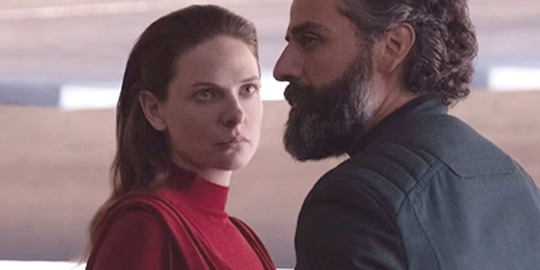
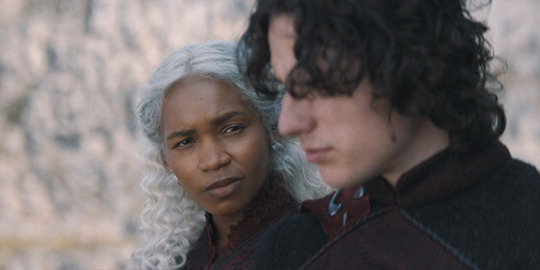
Hear me out, I am not saying anything in particular, yet I am saying some matters which I may elaborate upon in times to come.
#however there are matters i wish to say at this moment for instance:#denis mine guy i know you do not wish to adapt children of dune but what if you were to film a prequel#and cast our lad harry as a young leto and while you are at it you might as well get our lass bethany as lady jessica#i have a title for you denis; tis The Red Duke. would be much and more comely#we could behold him reigning with supreme strategy and diplomacy upon caladan commanding fervent loyalty#splattering charisma across the ocean falling head over heals for jess#what splendid exemplar of comeliness wit and heart#'tis excellent depiction of:#doomed by the narrative#i shall ne'er cease my prattling on the matter#the fulminations of viserya#how shall i deal#jacaerys targaryen#baela targaryen#hotd#—motion picture#dune (2021-2024)#leto atreides#lady jessica#< mine precious requireth a tag
24 notes
·
View notes
Text
So I just finished watching “Blade Runner” (The Final Cut) for the first time after re-reading “Do Androids Dream of Electric Sheep?”, and I just feel like…they took all of the best, interesting, thought provoking parts of the book and decided they didn’t belong in the movie?
The first seven pages of DADoES I was constantly remarking “oh this is an interesting thing to say about humans/robots/aromanticism-as-tied-to-robots”, and at that point I had to stop myself from making detailed notes so I could actually finish the book in a reasonable time frame. After BR, I don’t really have anything to analyze or remark upon except “they took all of the roboticism out of the allegedly robot movie, and now there’s no aromanticism either”.
#this is just stream of consciousness first reactions to blade runner#i would need to rewatch the film to be able to stand behind any analysis i do of it#but i just…why would they make a movie that’s supposed to be about robots#and then not have any roboticism in it?#excellent visuals and excellent music but no robots. i don’t currently understand why this film is so popular#like to be clear i know the replicants are supposed to be the robots; i just don’t feel like they really are tied to robots#in terms of tropes/themes/plotlines/general depiction and portrayal.#aro#aromantic#aspec#lgbtq#queer#original#media analysis#unpolished media analysis
65 notes
·
View notes
Text
Kabru, impossible mutual understanding & unknowable objects
Despite his concerted and constant efforts to understand other people, it’s established in a few extras that Kabru believes that true mutual understanding between certain different races is impossible. Specifically, between long-lived and short-lived races, and between humans and demi-humans. Partially, we can trace this conviction back to specific hang-ups caused by his life; the trauma of the Utaya disaster, prejudices he carries from his childhood, and his experience of racism among the elves. In this “little” essay, I’m gonna discuss how I think those experiences formed this belief, how it comes out in his actions, and how some of his actions seem to contradict it. The question of whether it’s possible to reach mutual understanding with other living beings despite our differences is one of the core themes of the manga, and I’ll also touch on how this aspect of Kabru’s character links to that.
Seeking understanding
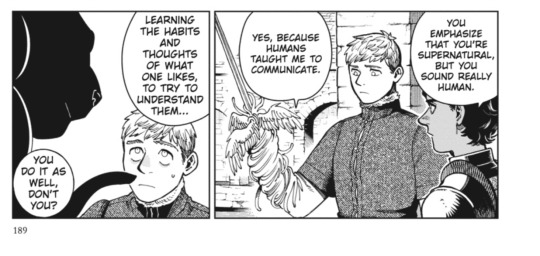
Kabru is a character who devotes a huge amount of time and effort to understanding people, and he is very good at it. In his internal monologue, we can tell how advanced and complex his skills of analysis are. He is able to read a huge amount of information just from looking at people's faces and body language.


People are, to him, what monsters are to Laios. This is something that's been expanded on at length in other, excellent meta. It's the fact that they're foils; it's the fact that Kabru is also very easy to read as autistic, with a special interest which is the opposite and parallel of Laios'. It's something that came out of trauma and alienation, as Laios' special interest in monsters also began as a coping mechanism.
The complicated origin of this "love" for monsters and for people comes through, I think, in the fact that one of the places we see both characters use their fixation is in being very, very good at killing the thing that they love. This also ties into the idea that loving something isn't even remotely mutually exclusive with using it to sustain your own survival; using it for your own purposes; hurting it or killing it. Love can be, and often is, violent, possessive and consumptive. This understanding is part of what makes Kui's depiction of interpersonal relationships so compelling to me.
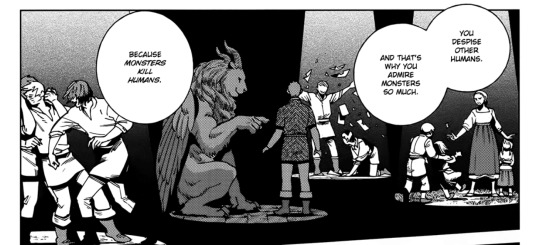
While Laios fixated on monsters and animals to seek a place of escape, in both his imagination and his self-image, from the humans who he couldn't understand and who couldn't understand him, Kabru seems to have fixated on understanding people in order to navigate the complex, socially marginal places that he has been forced into throughout his life. As an illegitimate child raised by a single mother with an appearance that marked him out as different to the point his father's family wanted to kill him, and a tallman child raised among elves who didn't treat him as fully human and wanted him to perform gratefulness for that treatment – treatment that, after he met Rin at age 9, he certainly always understood could be a lot worse – his ability to work out what people wanted from him, whether they were friendly or hostile or had ulterior motives, wasn’t just an interest. It will have been an essential skill.
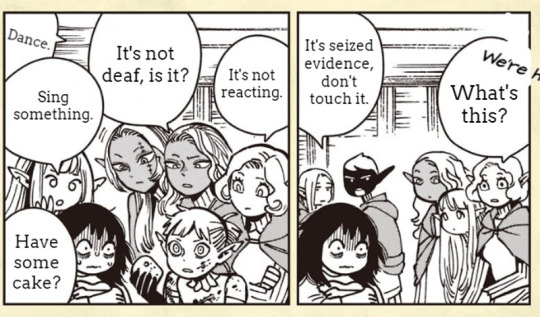
Milsiril, I think, was a flawed parent who tried to do her best by Kabru and did a lot of harm to him despite her best intentions. She may have treated him much better than an average elf would have, but like Otta and Marcille's mother, there are other elves with different outlooks on short-lived races. How would they judge her treatment of him? We don’t have any insight on what it could be, but to be honest, the person’s whose opinion of her I’d be most interested in knowing is Rin’s.
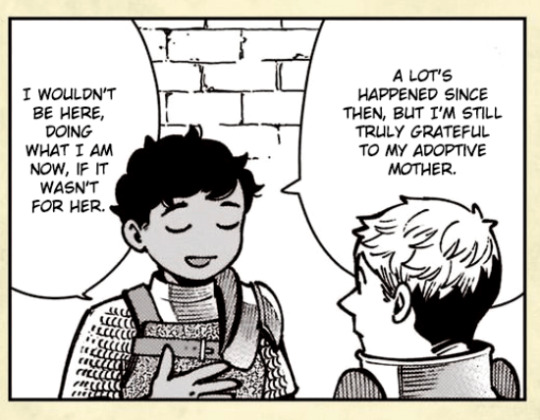
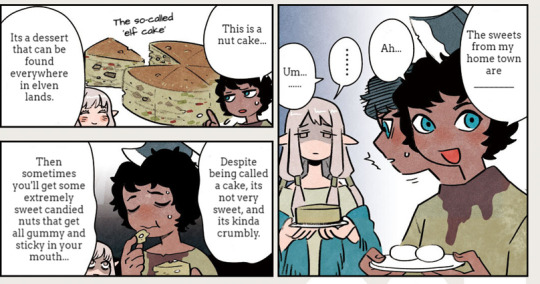
But even if she'd been perfect, living as an trans-racial adoptee in a deeply hierarchical nation with a queen who is a 'staunch traditionalist' who wouldn't even acknowledge the existence of a half-elf like Marcille (according to Cithis) is an experience that would deeply impact anyone.
Elves & Impossible mutual understanding
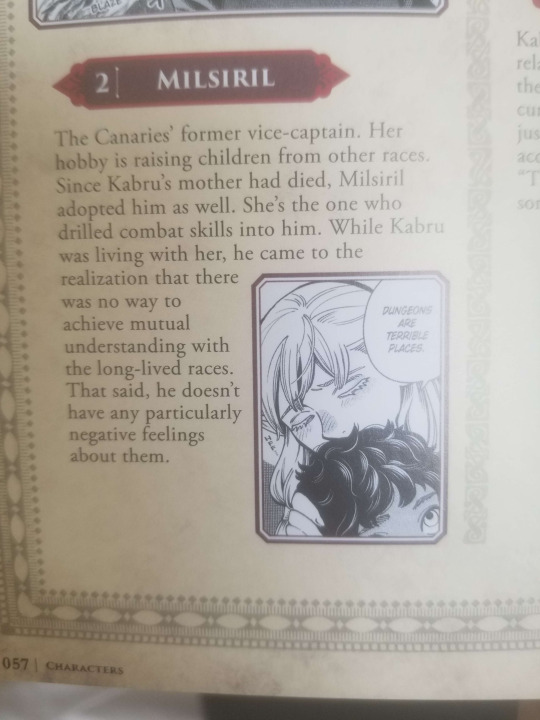
While Kabru was living with Milsiril - in other words, while living in the Northern Central Continent - he came to believe that "there was no way to achieve mutual understanding with the long-lived races."
This is evident in his political project: he wants short-lived races to have ownership over the dungeon's secrets. Despite his dislike of the Lord of the Island, he's a useful bulwark to stop the elves taking over. Despite his doubts about Laios, Laios needs to be the one to defeat the dungeon, because if he doesn't the elves will take over.
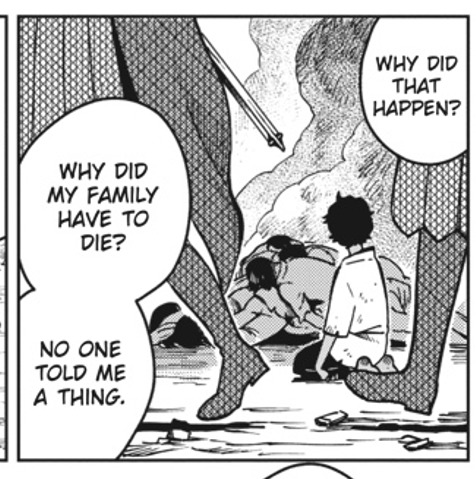
Kabru still carries a deep scar from Utaya, one that was exacerbated by the fact that he never got an answer to any of his questions about what happened or why. This, despite the fact that Milsiril knows about the demon and how it works. Do you think Kabru, with his social perceptiveness that borders on the superhuman, wasn't aware that she knew more than she would tell him?
Given that, the fact that he gets to a place where he "doesn't have any particularly negative feelings about [elves/long-lived species]" .... well, to put it bluntly, I believe that he thinks that's the case, but I kind of doubt it. After all, if he did have resentment, of Milsiril (someone who was his primary provider and caretaker since age six, and who despite her flaws, loves him and who I do think he loves) or of elves (who he has had to play nice with for most of his life, in order to survive, and will still have to play nice with in order to achieve his goals, since they hold all the power) what would that do except hurt him and make his life harder? Kabru is Mr. Pragmatic, so I don't think he'd let himself acknowledge any such feelings he did have. Exactly because he can't acknowledge them, they're well placed to get internalised as beliefs about the Fundamental Unchangeable Nature of the World.
However, these stated beliefs seem to contradict his actions. Despite his belief in the impossibility of forming a mutual understanding, he certainly seems to try to understand long-lived people, just as much as he does short-lived people. There's no noticeable difference between his treatment of Daya & Holm versus Mickbell & Rin that isn't clearly down to their relationship with him. His skills of human analysis were honed and developed while living amongst elves, and as soon as he's alone with Mithrun he immediately sets to understanding him - his interests, his motivations, his needs, and his past.
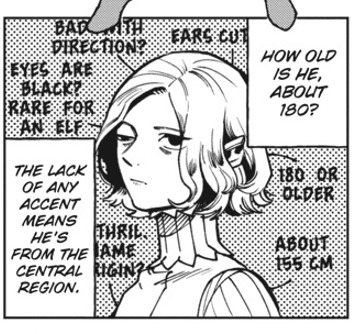
He treats him considerately and without bias, and despite the fact that Mithrun conquering the dungeon for the elves is both a reenactment of a core part of his childhood trauma and a political disaster for his aims, that doesn't seem to colour his perspective on Mithrun negatively at all.
This is something I find extremely laudable about Kabru, and it's another way he parallels Laios. He seems to understand that people, as a rule, (in Laios' case, he understands this about monsters - and eventually, all living beings) will act in their own interests, and if those interests conflict with yours, might harm you. But that's just their nature, and it's not something that should be held against them; you're also doing the same thing, after all. The crux of Laios' arc is precisely that he has to accept the responsibility of hurting someone else in order to achieve what he wants.
Kabru is deeply concerned with his own morals, what he should and shouldn't do, but mostly in the context of responsibility for the consequences - a responsibility he takes onto himself. He isn't scrupulous about what he needs to do in order to create the outcome he wants, but if he fails to create that outcome, then....
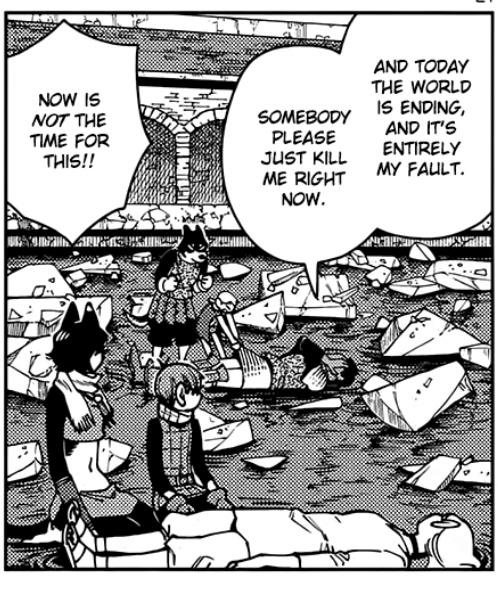
He blames himself to the point of thinking he should die. He doesn't blame Laios, or seem at all angry with him, despite concluding he should have killed him to prevent this outcome. That's because in his eyes, ultimately Laios was going to act according to his own nature, and it's Kabru's fault for not understanding that nature well enough. He's extremely confident in his ability to understand and predict others, (including elves and other long-lived people). Then, where does his conviction that mutual understanding is impossible come from?
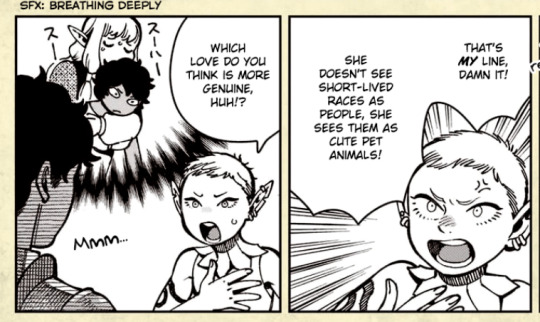
Partially, it's the "mutual" part. I'm sure Kabru, who isn't able or willing to deny Otta's insinuation that Milsiril saw him more like a pet than a son, has felt that his full interiority, the depth of his feelings and his ability to grow, act, and think as a fully equal being, was something that the elves around him just couldn't grasp. Because that was their excuse for it, he came to understand this as a gulf between short-lived and long-lived beings, an inevitable difference in outlook caused by their different lifespans.
This experience might be part of what leads to his iconic “fake” behaviour. He trusts his ability to understand others, but if they aren’t able to understand him, then there isn’t any benefit to being honest about his feelings and thoughts. If his attempts to reach mutual understanding with his caretakers were never able to be fulfilled, then it isn’t any wonder that he reacts with such surprise and horror at blurting out his desire to be Laios’ friend.
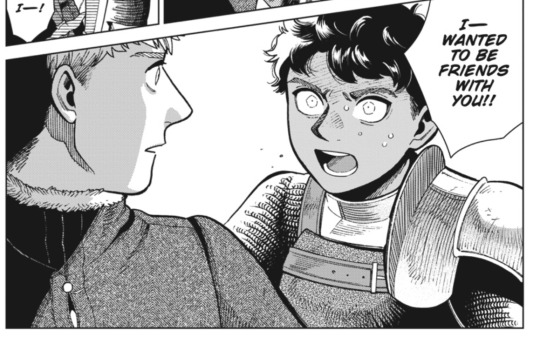
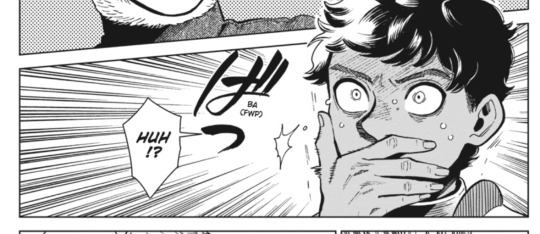
In his experience, making yourself vulnerable in that way only leads to being hurt. Soothing him, hushing him, lying to him, talking to him like a child that isn’t able to use proper judgement – that’s an inadequate and deeply hurtful way to respond to genuine distress, the desire for autonomy, or disagreement. Ultimately, I think that’s why he comes out on the side of being grateful to Milsiril; because she did equip him with the skills and knowledge he’d need to reach his goal, and let him go.
Though he could understand them, they couldn't understand him. To the extent that was true - which I'm sure it was - it wasn't due to anything about lifespan. It was due to the elves’ racism, and the solipsitic mindset & prejudiced attitude that it caused them to approach him with.
Because, if it needs to be said, the idea that there is an unbreachable gap in understanding between the long-lived and short-lived species is not true. Marcille and Laios have a much greater difference in lifespan than any full elf from any short-lived person, and they’re able to understand each other – maybe not perfectly, but better than many other people who are closer in life-span to them.
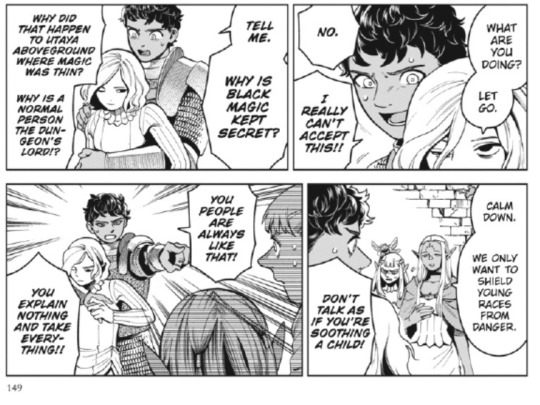
That doesn’t mean that I think Kabru is wrong about this, however. Because there’s an interpretation of his statement that is reflected in his actions and is true. When he talks about his problem with elves, it’s not just their attitudes: it’s their power, and what they use it to do. They “explain nothing and take everything”. Though it’s presented in the guise of ‘guiding and protecting’, in fact it’s a simple case of a powerful nation using their military power, wealth, access to resources, and historically stolen land – including the island itself – to protect their own interests and advance their own agenda. That’s why they’d be able to show up, seize the dungeon, and forcibly take Kabru’s party and Laios’ party to the West. If Kabru wants to stop that from happening, or change that status quo, persuasion or a bid to be understood would be completely pointless. Between the political blocs formed by long-lived species and the interests of short-lived species, “mutual understanding”, given their current, unequal terms, would be impossible. This is something that we see reflected in Kabru’s actions; before he asks his questions about the dungeon, he grabs Mithrun as leverage. He never really attempts to persuade the canaries to see his point of view, because that would be pointless: they’re agents of the Northern Central Continent’s monarchy, and will act in its interests regardless of any individual relationship with him.
I don’t think Kabru sees the different dimensions of this belief of his in quite such clear terms, however, as is evidenced by the other group who he thinks it’s impossible to communicate with.
Demi-Humans & Unknowable Objects
The other place that we see his conviction about the impossibility of mutual understanding is in the kobold extra.
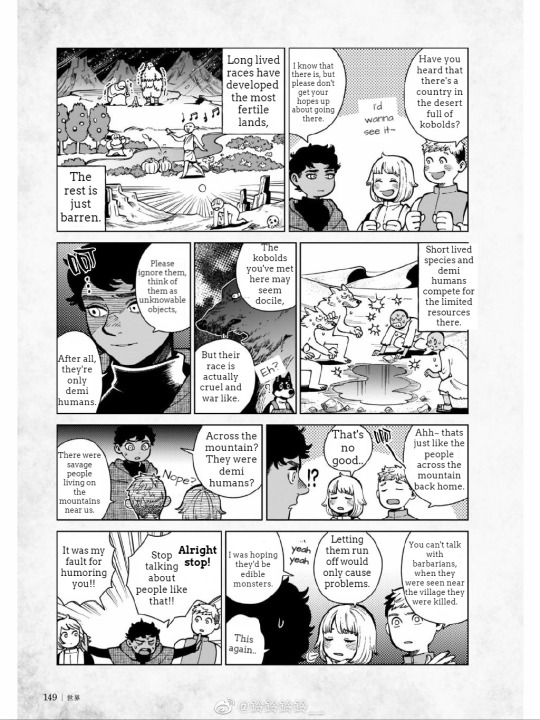
I'm including the whole thing, because I think it's an excellent and clever piece of world-building. Aside from what it says about Kabru, which I'll expand on shortly, what this extra does is deconstruct and call into question the usual "fantasy ontological biology" present in these sort of DnD-like settings. Essentially, the kind of worldbuilding where a race (such as kobolds) can be described as war-like, and that's establishing something essential about their biological nature. That's common to the point that if Kui didn't include this, some people would probably come away thinking that's the case about, e.g., the orcs.
But here, despite what Kabru is saying, the information the reader actually gets is:
the conflict between short-lived humans and demi-humans such as kobolds is mostly over access to material resources that they need to survive.
These resources are scarce because powerful nations, such as the elves, have monopolised them.
Kabru, who has grown up in a place at the centre of these conflicts, ascribes essential, negative traits to a cultural group which was in direct conflict with his own. Communication with this other group is impossible; they aren't people, they're more like objects.
oh yes! just like this conflict between groups of tall-men, a conflict which the reader will immediately interpret as more clearly analogous to real-life racism. Our other protagonists also carry prejudices from growing up in a place where a marginalised group was in conflict with the dominant group over scarce resources. It's definitely impossible to communicate with these people, and you can only kill them.
Woah, when you say it like that, it sounds pretty bad!
But also, nobody walks away having had a realisation or unlearned their prejudices - because they don't have the tools they need to do that work. Yet. I do think, to an extent, it could happen - especially with Kabru, since it's suggested in the epilogue that Melini might become a safe-haven for demi-humans.

To focus in on Kabru, the key here is his statement that you should think of demi-humans as "unknowable objects". Even his extraordinary powers of understanding have seemingly hit a limit. Part of this is just inherited prejudice, and doesn't need to have a complicated psychological explanation, any more than the elves who were prejudiced against him need one.
But also... this is probably somewhat linked to the way demi-humans seem to be considered "pseudo-monsters". They're the place that the strict delineation between the human and the monstrous is permeated. Laios, who is not interested in humans, remembers and is excited by Kuro. Chilchuck and Laios argue over whether it's OK to eat a mermaid. Kabru's prepared to (pretend to) roll with the idea that Laios ate the orcs.
But these are people, aren't they? Of course, this is a social construction, as we see from the fact that in the Eastern Archipelago, the label of "human" is reserved for tallmen, but in most of the rest of the world it depends on some obviously arbirary classification based on number of bones; "demi-humans" aren't in any essential way monstrous, except to an extent in their appearance, and physical location - due to their marginal social status, they're pushed out to live in unsafe places such as dungeons.
Therefore, Kabru's view of demi-humans as fundamentally "other", unable to be understood - monstrous - could be read as akin to abjection, the psychoanalytical concept described by Julia Kristeva. In order to create a bounded, secure superego, that thing which permeates and calls into question the border between self and other, human and animal, life and death, is rejected and pushed to the margin.
“Not me. Not that. But not nothing, either. A "something" that I do not recognize as a thing.[...] On the edge of nonexistence and hallucination, of a reality that, if I acknowledge it, annihilates me. There, abject and abjection are my safeguards. The primers of my culture.” (Kristeva et al., 1984, p. 11) “It is thus not lack of cleanliness or health that causes abjection but what disturbs identity, system, order. ” (Kristeva et al., 1984, p. 13) “The pure will be that which conforms to an established taxonomy; the impure, that which unsettles it, establishes intermixture and disorder. [...] the impure will be those that do not confine themselves to one element but point to admixture and confusion.” (Kristeva et al., 1984, p. 107) (discussing food prohibitions in Leviticus)
This is both (due to its affinity with food-loathing and disgust) a very fruitful concept to apply to dunmeshi, and a psychoanalytical theory which I wouldn't exactly cosign as True Facts About Human Psychological Development. You may also know the abject from its utilisation in the classic essay "Horror and the Monstrous-Feminine" by Barbara Creed - that's a lot more approachable than Kristeva if anyone's interested.
Key here, though, is that through the symbol of the "demi-human" is embodied a step between "human" and "monster" - and that's a prospect that puts at risk the whole notion of an absolute separation between those two categories in the first place. To Laios, that's something wonderful, and to Kabru, it's terrifying. We can see this principle further embodied in the relationship both characters have with the notion of becoming monstrous.
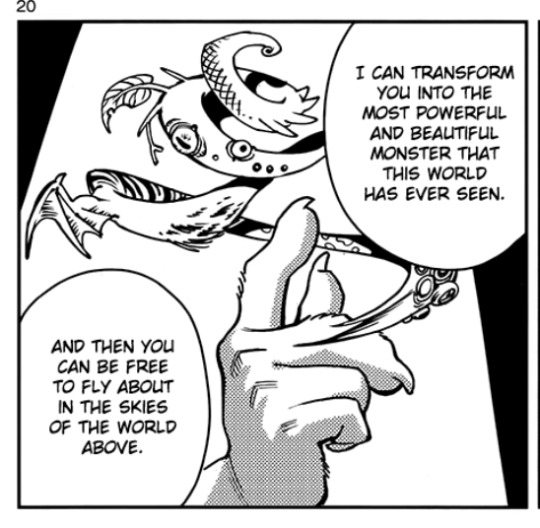
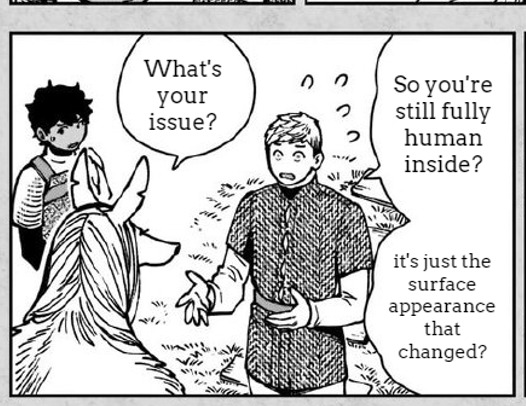
To Laios, this is transcendent, and represents a renunciation of everything human - in fact, if it didn't, it wouldn't "count".
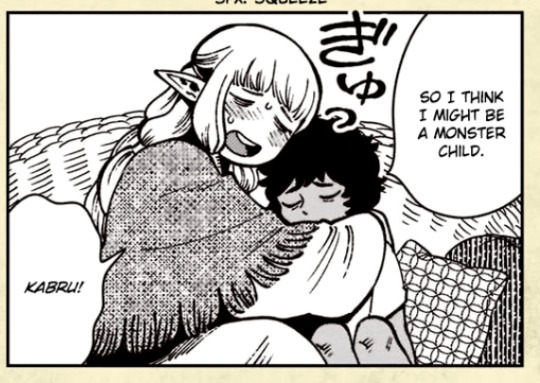
To Kabru, it's a deeply-held fear, established by his childhood alienation (due to his illegitimacy, his eyes, and perhaps also his neurodivergency), deepened by monster-related trauma and the sense of responsibility and survivors guilt he feels for what happened at Utaya. His identity as a human who is not monstrous is key to his sense of stability and safety; he doesn't want to touch monsters, he doesn't even want to see them.
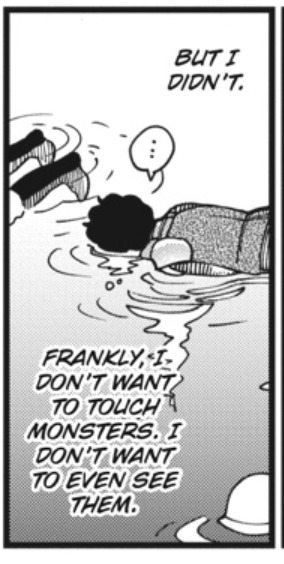
To acknowledge a kinship, a possibility of similarity between the things he loves (humans) and the things he hates (monsters) would be more than touching them - it would be putting them inside him. We know, quite explicitly, that this notion is triggering to Kabru. He literally has what seems to be a flashback when he's about to eat the harpy omelette.
So he abjects it, classifying the demi-human as fundamentally unlike him - an unknowable object, or an object that he refuses to know. Because in understanding it, he would interject the things he hates and fears into his self, which is already, always under threat by that hated and feared object.
Of course, again, Kabru isn't very good at enacting this refusal in practice. For one, when he chooses between his desires and ingesting the feared object, eating monsters... he eats monsters. Part of this is treating himself badly, the "ends justify the means" mentality. His goal is to destroy all monsters, so if he needs to become monster-like to do that, he will. But part of it is also the other motivation that he didn't even seem to know about until he said it: he wants to become Laios' friend, and to learn from him how a person can like monsters. He wants, at least in some part of him, to reconcile the feared and hated object into something he can understand.
For another:
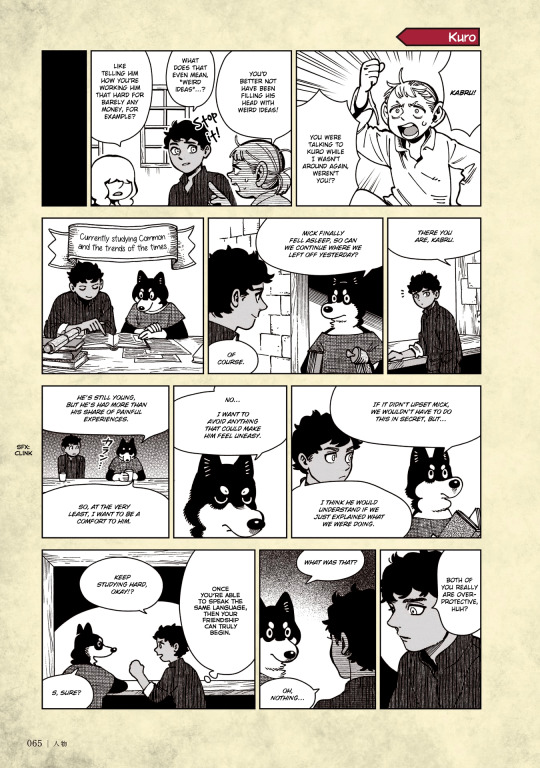
Kabru can speak the kobold language. In the first place, while this may have been common in Utaya, it also could have been something he chose to learn, an early expression of his interest in understanding and talking to all sorts of people. It isn't the kind of thing you learn if you believe that communication between yourself and the group that speak it is impossible, is it?
It's possible to harbour prejudices against a group while being kind to an individual, and given Kabru has those prejudices regardless of his reasons, that is what he is doing. But also, his treatment of Kuro doesn't reflect a sincerely held belief that he's an "unknowable object" at all. His approach is exactly the same as it is to any other person: an analysis of goal and motive, and an attempt to help if he's sympathetic and their goals align - going out of his way to give language and local knowledge lessons in secret. His conviction that Mickbell and Kuro will truly become friends when they can properly communicate is completely contradictory to any sense of demi-humans as fundamentally different, or impossible to reach mutual understanding with. To me, it seems like this self-protective shield against the corruptive force demi-humans as an idea present to his identity, this abjection, when Kabru is face-to-face with one, just simply can't hold up against his finely honed skill of intellectual empathy. Perhaps because he's autistic, it seems his "empathy" is less an emotional mirror response, and more a set of cognitive skills for analysis of others. That instinctual, emotional empathy might not trigger when presented with a member of an out-group, but if it’s possible for Kabru to turn his cognitive empathy off, we don’t see him do it.
This isn't to say that this prejudice doesn't affect his behaviour. For one, it could negatively impact his judgement of politics and policy, where individual people don't enter into it. For another, I'm not convinced he'd be willing to overlook Mickbell's exploitative relationship with Kuro if Kuro wasn't a kobold. As it is, since both of them are satisfied, he doesn't feel like he needs to intervene, regardless of the fact Mickbell isn't paying Kuro. But if Daya and Holm were in a relationship, and Holm took both Daya's and his own share from their ventures, but only compensated her in living expenses and kept the rest, do you think he'd tolerate it, for example? Even if she said it was OK?
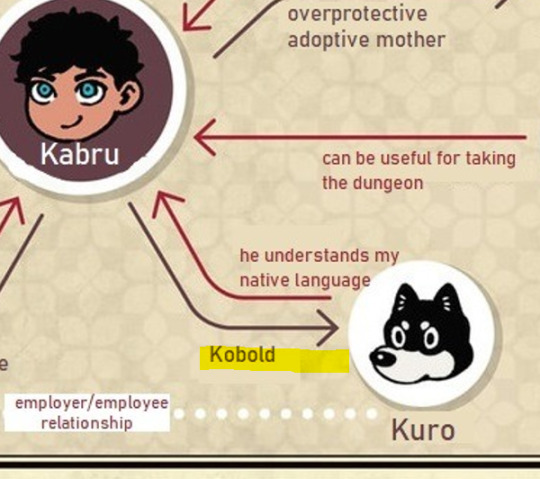
Conclusion

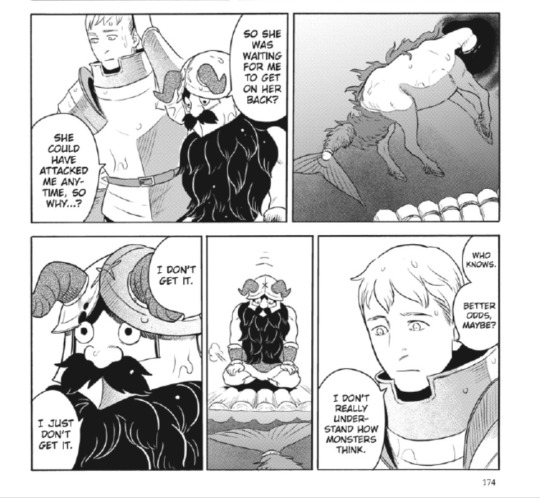
The kelpie chapter establishes that "people can never know what monsters are really thinking." That isn't just true of monsters, though.
True mutual understanding is impossible - between anyone. We can never truly understand another person's heart. This is touched on in, for example, the existence of shapeshifters and dopplegangers. Even a monster that seemed like a perfect copy of a person wouldn’t be that person, and wouldn’t be a satisfactory replacement.
We’re intended, I think, to understand the winged lion's repeated suggestions to just replace people who have been lost with copies as something uncanny, which demonstrates the way that the winged lion never manages to attain a complete understanding of humans. A version of a person who was created to fulfil your memories of them, to be the person who you wanted them to be, would be a terrible, miserable thing.
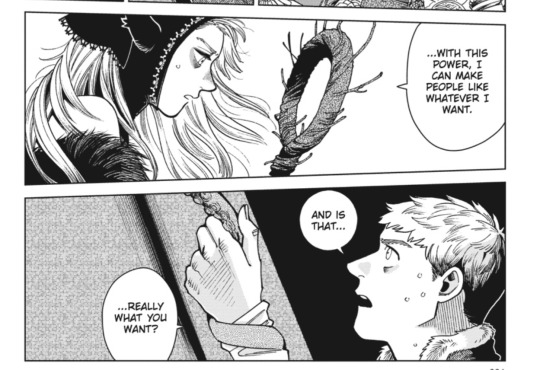
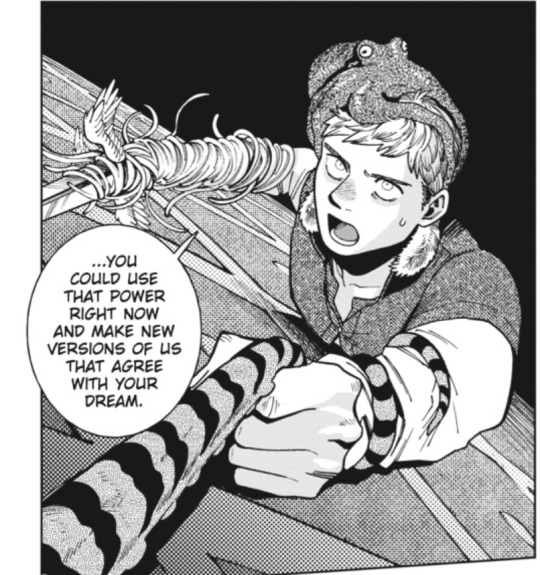

Disagreeing, coming into conflict, and misunderstanding each other, are essential parts of what it means to be living beings, as fundamental as the need to eat.
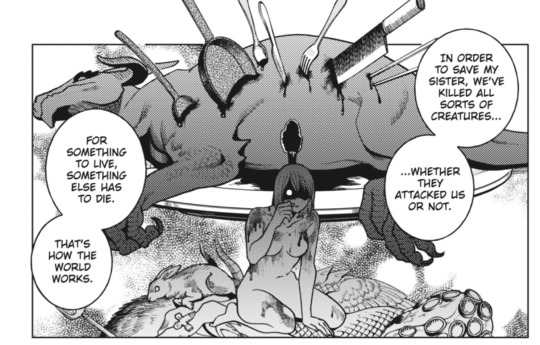
The only thing to do is not to take more than you need to eat to survive, and not impose your own desires onto others. To do your best to sincerely communicate your desires, even if they're embarrassing or vulnerable or strange, like Kabru eventually does with Laios; like Laios does, bit by bit, with the people around him; like Marcille does, Chilchuck does, Senshi does... to hope they will accept you, and do your best to understand them in return.
We can re-examine, in that context, Kabru's line about the elves' tendency to "explain nothing and take everything".
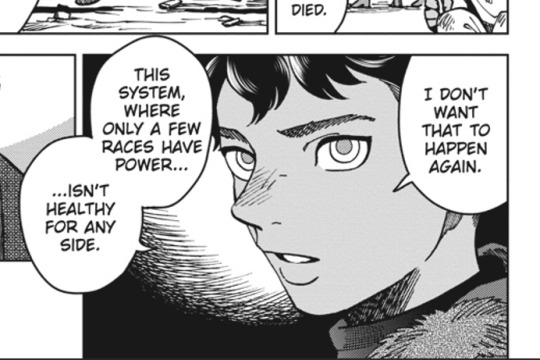
They have the power to impose their preferred "menu" onto less powerful groups. And in that context, mutual understanding being impossible just means that they won't give up their power because they're asked nicely. Kabru's goal is to seize the truth that they won't give to him, and to create a situation where they can't take everything. Because he's accurately surmised that nothing about the treatment of short-lived races will change so long as the power imbalance remains. Despite the way he mistakenly ascribes part of that to "long-lived vs short-lived" or "human vs demi-human", the actual gulfs in understanding he identifies are structural, are about power and about access to material resources and safety.
I think he could come to recognise this. Yaad is teaching him political science after all, and while a prince's lessons on political science won't exactly get at much that's radical or invested in the interests and perspectives of the marginalised (Capital is a critique of for a reason after all...) I believe in Kabru's ability to learn critically and get more from a lesson than it was intended to teach.
#og post#kabru of utaya#kabru dungeon meshi#laios touden#dungeon meshi meta#dungeon meshi#dunmeshi#dungeon meshi manga spoilers#dungeon meshi analysis#kuro dungeon meshi#the canaries#milsiril#continuing to develop my kabru theses.#literally sitting and thinking about kabru all day. rotating him.#he's in the microwave. to me.
2K notes
·
View notes
Text

奈何缘字太难写又难续
Songxiao as the Lovers tarot card, as requested by @tricksterly-conduct for the @yicityaction Gotcha 4 Gaza! Thank you so much for your donation and for such an excellent prompt ❤ Donations are still open until the beginning of March! 🍉🍉
Alternate version and ID below the cut:

[ID: Two images depicting Xiao Xingchen and Song Lan, drawn as the Lovers tarot card. They are dressed in white and black robes respectively. They stand in profile, holding hands, smiling at each other with closed eyes, their foreheads and noses touching. A large full moon frames them from behind amid a blue night sky. In the first image, they are joined by a red string tied to each of their little fingers, which winds throughout the image. The thread tangles around red linework of Shuanghua; the sword is superimposed on the couple to pierce through Xiao Xingchen's neck and Song Lan's heart. The second image is identical, without the red string or sword overlays. /end ID]
#happy valentine's day. what's more romantic than digging your eyes out for your bestie then ending both your lives on the same blade.#nobody's doing it like them#songxiao#xiao xingchen#song lan#song zichen#mdzs#mdzs fanart#aoxue.png#tarot#yi city g4g#i got really excited about this one gsfkjsj tysm trix for real#the butterflies were meant to be a tiny nod to the butterfly lovers/liang zhu and i like them there in the composition#however. combined with the red string of fate it's admittedly giving hualian LOL oh well
285 notes
·
View notes
Text
Toilet Bound Hanako-kun Hanakotoba Analysis

While it might seem surprising that it's taken me this long to cover TBHK—given my adoration of the series and its abundance of flower symbolism—what delayed me was mainly the lack of clarity as to which flowers represented which characters and scenes. This is mostly because multiple characters have been depicted with the same flowers while some characters have been depicted with multiple flowers. I went off of flowers I've seen in the anime and any official artwork I managed to find since it's been a while since I read the manga. In any case, I tried my best...
═══════════════════════
-> 1) Camellia (Camellia japonica)



-> 1.1) Flower Symbolism:
In Japan, camellias are called tsubaki (椿). They are associated with modest kindness, pride, eternal love and enduring love in hanakotoba. Red camellias in particular symbolise love, humble virtue, modest splendour, unpretentious grace and "perishing with grace" in hanakotoba. Pink camellias represent love, modesty, beauty, longing and missing someone. On the other hand, white camellias symbolise waiting, impeccable charm complete beauty and supreme loveliness. Camellias are also associated with everlasting love, marital bliss and perfect unions between lovers because, unlike most other flowers, the calyx and petals of a camellia flower don't separate when its flower wilts. In Western floriography, camellias are associated with constancy, steadfastness, perfect loveliness, unpretending excellence, adoration, longing, admiration and perfection. Red camellias in particular are associated with passion, love and desire.
-> 1.2) Discussion of symbolism:
The most prevalent flower depicted in the TBHK anime and manga series—as well as in its official artwork—is the red camellia. A silhouette of a camellia flower is even incorporated into the series' logo. In the series, camellias are often associated with its titular protagonist, Hanako—but are also occasionally associated with Nene Yashiro and Tsukasa Yugi. Despite being closed off and often smiling to mask his emotions, Hanako cares greatly for those close to him, which ties into the camellia's symbolism of modest kindness. Over the course of the series, Hanako and Nene have come to care a great deal for one another with the former going so far as to uproot the lives of others and sacrifice his own existence to save her. This ties into the camellia's symbolism of enduring love, adoration, longing, passion and perishing with grace. Meanwhile, Nene goes so far as to change the timeline so she can see him again. This ties into the camellia's association with steadfastness, longing, passion, adoration and enduring love. Nene's innate kindness and naivety as well as her development throughout the series from an insecure, hopeless romantic to someone more assured and determined greatly complements the flower's symbolism of loveliness, charm, modesty and beauty.
━━━━━━━━━━━━━━━━
-> 2) Hollyhock (Alcea rosea)


-> 2.1) Flower symbolism:
In Japan, hollyhock flowers are called tachiaoi (タチアオイ) and symbolise ambition, abundance as well as noble and majestic beauty in hanakotoba. Pink hollyhocks in particular symbolise benevolence and gentleness while red ones symbolise love. In Western floriography, hollyhocks are associated with ambition and fruitfulness. Pink hollyhocks represent innocence, youthfulness, gentleness and grace while red ones symbolise passion, love, strength, resilience and courage.
-> 2.2) Discussion of symbolism:
In the series' first episode, hollyhock flowers are seen growing in the garden that Nene tends to as she talks to Hanako. They are also pictured in the opening theme of the second season alongside Aoi Akane. Hollyhock flowers have also been depicted in official artwork alongside Nene and Hanako. The hollyhock flower's symbolism of strength, resilience, courage, and love complement the trials and tribulations Nene and Hanako have gone through for one another. While the flower's symbolism of benevolence, ambition, gentleness, youthfulness, resilience, passion and love strongly complement Nene's character. Although she isn't depicted with hollyhock flowers as often as HanaNene are, the kanji of Aoi's name (葵) translates to hollyhock. The hollyhock flower's symbolism of grace, passion, love, beauty, benevolence and gentleness complement her outward-facing personality.
━━━━━━━━━━━━━━━━
-> 3) Bellflower (Campanula sp.)


The flowers depicted in this artwork of Hanako and Nene Yashiro are bellflowers. Although the exact species depicted is unclear, the closest resemblance is the Korean bellflower (Campanula takesimana).
-> 3.1) Flower symbolism:
In Japan, bellflowers are called berufurawā (ベルフラワー) and represent humility, gratitude, sincerity and an unchanging heart in hanakotoba. The bellflower's association with humility is derived from its downfacing flowers. In Western floriography, bellflowers symbolise humility, constancy, sincerity, gratitude and unwavering love.
-> 3.2) Discussion of symbolism:
Pinkish-purple bellflowers are featured alongside Nene Yashiro and Hanako in the release notice and cover artwork of chapter 116 of the manga. The bellflower's associations with gratitude, sincerity, constancy, unwavering love and an unchanging heart greatly complement Hanako and Nene's feelings for one another.
━━━━━━━━━━━━━━━━
-> 4) Daffodil (Narcissus sp.) & Marigold (Tagetes sp.)


-> 4.1.) Flower symbolism:
-> 4.1.1) Daffodil Flower Symbolism:
In Japan, daffodils are known as suisen (水仙). They are associated with conceitedness, self-love, respect, regard and unrequited love in hanakotoba. Yellow daffodils in particular symbolise "come back to me" and "I want you to love me again". In Western floriography, daffodils symbolise egoism, self-love, respect, chivalry, unrequited love, evanescent happiness and deceitful hopes.
-> 4.1.2) Marigold Flower Symbolism:
In Japan, marigold flowers are called marīgōrudo (マリーゴールド). They represent jealousy, despair and sadness in hanakotoba. In Western floriography, marigolds symbolise jealousy, despair, cruelty, pain, pessimism and grief.
-> 4.2) Discussion of symbolism:
Daffodils and marigolds are featured on the cover of volume 15 of the cover as well as on the above official art of Hanako. Although the main trio is featured on the cover of volume 15 given the solo artwork of Hanako, it's a reasonable assumption that he is the one canonically linked with these flowers. A single daffodil is also featured on the cover of volume 0 alongside Hanako. Both daffodils and marigolds have negative connotations in flower language contrary to their bright and pretty appearance. This is somewhat reminiscent of how Hanako hides his true emotions and inner turmoil behind a mask of cheerful mischievousness and hides how closed off he is emotionally with Nene with how physically affectionate he is with her. Added to this, the marigold's symbolism of jealousy, despair and grief as well as the daffodil's symbolism of regard, egoism, deceitful hopes complement his character. Furthermore, the daffodil's symbolism of "come back to me" and "I want you to love me again" greatly resonates with Nene's feelings towards Hanako in the current arc of the manga.
━━━━━━━━━━━━━━━━
-> 5) Sunflower (Helianthus sp.) & White Lily (Lilium candidum) & Tiger Lily (Lilium lancifolium)


-> 5.1) Flower Symbolism:
-> 5.1.1) Sunflower Flower Symbolism:
In Japan, sunflowers are called himawari (ひまわり). In hanakotoba, they represent longing, adoration, aspiration and "I look only at you", longing, adoration". In Western floriography, sunflowers symbolise adoration, good luck, resilience, happiness, optimism, warmth, longevity and false riches. Sunflowers are also a representation of unconditional love, devotion and loyalty.
-> 5.1.2) White Lily Flower Symbolism:
In Japan, white lilies are called shirayuri (白百合). They symbolise purity, chastity, innocence and dignity in hanakotoba. In Western floriography, they symbolise affection, majesty, purity, sweetness and refined beauty. They are also associated with faith, rebirth and commitment. White lilies are often used at weddings due to their association with purity, commitment, and love. However, because of their association with purity, white lilies are often used at funerals and are thus also perceived as a symbol of grief and mourning. This established association of death with purity suggests that the departed spirit is pure, virtuous, and innocent, conveying sincere sentiments of hope and mercy beyond death.
-> 5.1.3) Tiger Lily Flower Symbolism:
In Japan, orange lilies symbolise brilliance and humour. In hanakotoba, Tiger lilies—which are called oniyuri (鬼百合)—represent pride, wisdom as well as wealth. In Western floriography, tiger lilies are associated with compassion, charity, wealth, humble pride, passion, mercy, confidence, positivity, prosperity and protection.
-> 5.2) Discussion of symbolism:
Tiger lilies and white lilies are featured on the volume 0 cover of the manga alongside Hanako. While sunflowers are depicted alongside Hanako on the cover of AidaIro's art collection. The sunflower's symbolism of adoration, longing, devotion, loyalty, unconditional love and "I only look at you" resonates with Hanako's feelings towards Nene. The sunflower's association with longevity and good fortune is reminiscent of Hanako's desire for Nene to live a good and long life. Given its association with positivity and happiness, the sunflower in the artwork could be a symbolic representation of Nene and how he longs for her and wants to protect her rather than just a figurative representation of his feelings towards her. The white lilies on the cover of volume 0 could be a representation of Hanako's purity and innocence during his human life as Amane Yugi. The white lilies' association with grief and mourning could infer that he mourns the loss of his innocence and purity. Conversely, the white lilies depicted could represent Nene while the tiger lilies represent Kou Minamoto—along with the daffodil representing Hanako. Each flower's symbolism complements their respective character, supporting this theory. With the white lily's association with purity, innocence, sweetness and beauty complementing Nene. While the tiger lily's symbolism of confidence, passion, positivity, charity, mercy, compassion and protection complements Kou.
━━━━━━━━━━━━━━━━
-> 6) Baby Blue Eyes (Nemophila sp.) & Lotus (Nelumbo nucifera)


-> 6.1) Flower Symbolism:
-> 6.1.1) Baby Blue Eye Flower Symbolism:
Baby Blue Eye flowers are known as Rurikarakusa (ルリカラクサ) in Japan. In hanakotoba, they symbolise success everywhere, daintiness and forgiveness. In Western floriography, they are associated with victory, prosperity, tenderness, sensitivity, harmony and trust. They also represent the transient nature of beauty and life, encouraging us to treasure every moment and appreciate simplicity.
-> 6.1.2) Lotus Flower Symbolism:
In Japan, lotuses are called ren (蓮) or hasu (はす). In hanakotoba, they symbolise eloquence, detached love, sacredness, and a pure heart. They are also associated with rebirth, purity, transformation, renewal, spiritual enlightenment and resurrection as well as beauty, grace and perfection. In Western floriography, lotuses symbolize purity of the heart, virtue, innocence, achieving great things, beauty rising from humble beginnings and bringing together separate things. Lotuses also symbolize estranged love and eloquence. Pink lotuses in particular are often associated with feelings of admiration.
-> 6.2) Discussion of symbolism:
Pink lotuses are depicted alongside Nene and Aoi on the cover of volume 13 of the manga. While the blue flowers depicted around Nene and Aoi on the artwork commemorating the release of chapter 60 are likely Baby Blue Eye (Nemophila) flowers. The lotus' representation of purity, enlightenment, innocence, virtue and sacredness is symbolic of both Nene and Aoi's roles as kannagi—ritual sacrifices to appease the gods and separate the far and near shores. The lotus' symbolism of perfection, beauty, grace and eloquence is reminiscent of how others perceive Aoi. Meanwhile, its symbolism of detached or estranged love is more reminiscent of her real personality and her feelings of resentment and bitterness at having to constantly pretend. The lotus' symbolism of a pure heart, admiration, "beauty rising from humble beginnings" and "bringing together separate things" complements Nene's character. The Nemophila's symbolism of harmony, trust, tenderness, sensitivity, forgiveness, success and treasuring simplicity complements Nene and Aoi's friendship and reinforces how all the tribulations they go through together strengthen their bond.
━━━━━━━━━━━━━━━━
-> 7) White Violet (Viola mandshurica) & White Daisy (Bellis perennis)


->7.1) Flower Symbolism:
->7.1.1) White Violet Flower Symbolism:
Violet flowers are called sumire (菫) in Japan. In hanakotoba, they represent humility, sincerity and small happiness. White violets in particular symbolise purity, candor and innocent love. In Western floriography, violets symbolise modesty and faithfulness. White violets in particular symbolise faithfulness, loyalty, modesty, innocence and purity.
-> 7.1.2) White Daisy Flower Symbolism:
In Japan. daisies are called hinagiku (雛菊). They represent purity, beauty, peace, innocence and hope in hanakotoba. In Western floriography, daisies symbolise purity, innocence, new beginnings and beauty.
-> 7.2) Discussion of symbolism:
On volume 18's fifth publication notice artwork, Sumire Akane is depicted alongside white daisies. While on the release artwork of chapter 89, she is depicted alongside white violets. Sumire's name (スミレ) means violet in Japanese making it a fitting choice for this artwork. The violet's association with modesty, innocence, purity, humility and sincerity plays into Sumire's youthful, nurturing and cheerful outward-facing persona. The artwork depicts her gently holding a white rabbit complementing this notion. The daisy's symbolism of peace, purity, innocence, beauty and hope further accentuates this. Although neither flower's symbolism hints at her underlying sadistic and manipulative side, her smile in each artwork is somewhat too saccharine. Both flowers' association with purity and innocence is symbolic of her role as a kannagi.
═══════════════════════
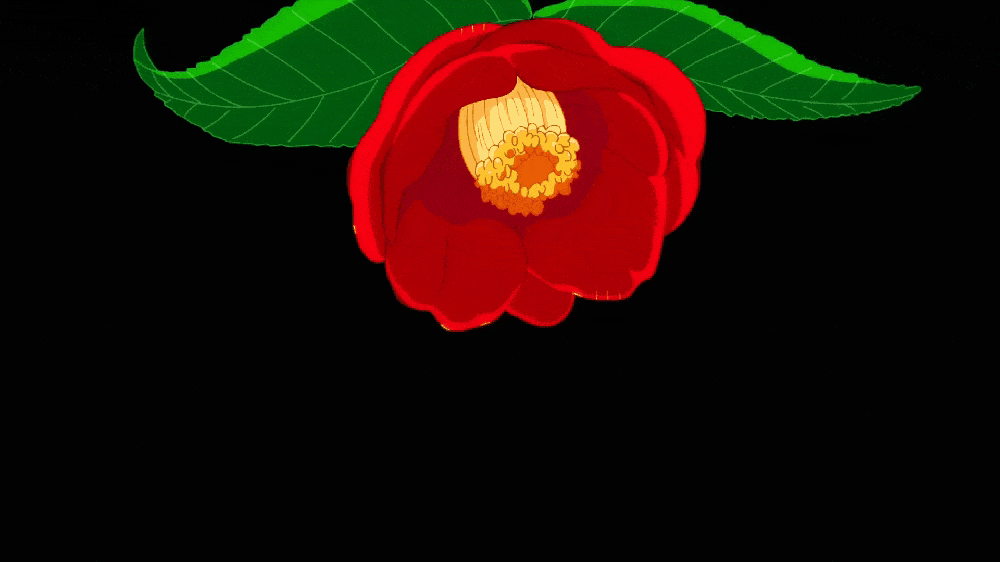
╰➤ Other anime & donghua hanakotoba posts
#tbhk#jshk#hananene#tbhk hanakotoba#anime hanakotoba#hanakotoba#floriography#tbhk season 2#jshk season 2#tbhk manga#jshk manga#hanako x nene#toilet bound hanako kun#jibaku shounen hanako kun#tbhk hanako#jshk hanako#yashiro nene#minamoto kou#aoi akane#akane aoi#nene yashiro#kou minamoto#amane yugi#sumire akane#akane sumire#tbhk nene#hanako x yashiro#anime#manga#anime analysis
52 notes
·
View notes
Text
An extensive KFP 4 rant (spoiler heavy)
So, Kung Fu Panda 4 was… an experience. It took about 3 glasses of whiskey to get through it.
There is so much wrong with this movie, from the pacing to lore breaking issues. However, this is an attempt at trying to formulate my opinions regarding the film, and explain why certain story decisions were detrimental.
My live reaction to the film:
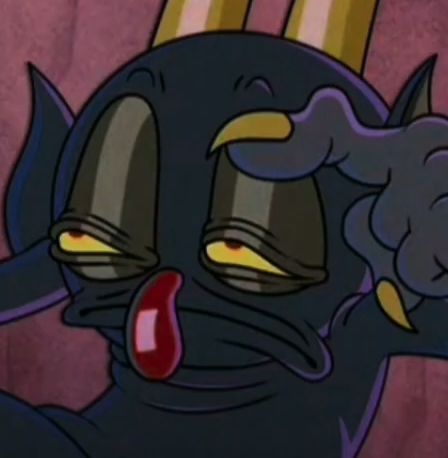
The movie makes it clear right from the start that it was made for very young children. It’s filled to the brim with jokes. If there is a chance to make a joke, then there is a joke. Regardless if it's appropriate or if it hurts the story/lore/characters. In normal circumstances, this would be offset by the fact that the jokes are creative and unpredictable, but they aren’t. I would say most of them can be seen either from a mile away, or they just fall flat. I think I only managed to laugh once or twice when Po’s dads were doing something, but outside of that, the film couldn’t get a chuckle out of me. On the contrary, I found many to be cringe, and some even made me uncomfortable.
But why am I talking so much about the jokes? In the previous Kung Fu Panda films, the jokes were used to break tension. The way the seriousness of the story and the jokes were in harmony is what made those films so memorable and impactful. The story (and films) took itself seriously, but it would sprinkle in jokes that fit the universe, the situation, and most importantly originated from the scene themselves.
Compared to this, the jokes in KFP 4 are, unoriginal, forced, and usually can be traced back to pop-culture. The last one being important as the original Kung Fu Panda films stayed away from referencing pop-culture as it would break the immersion and authenticity of the setting.
This ties into the ERA that these films depict.

Setting
Based on my limited understanding, the original films have done an excellent job at depicting a world that is supposedly set in an authentic ancient China. From the way names are handled, to symbolisms, everything was well done.
The same cannot be said about Kung Fu Panda 4.
I’m not an expert on chinese culture, but from what chinese friends have told me, „Juniper” city doesn’t sound Chinese at all, or has a meaning in Chinese. It’s essentially a Latin word for a common plant that can be found all over the globe.
The architecture of the city is also questionable. It’s trying to give off a metropolitan feel, which doesn’t fit the ERA. Additionally, the architecture of the buildings is odd. It’s like a mesh of the architecture of several Asian cultures.
Then there are some of the names. „Steve” and „Scott” to be specific. These are the names of some masters and I don’t think I need to explain why these don’t fit the setting at all.
I was constantly questioning what movie I was watching as it was hard to believe this is Kung Fu Panda.
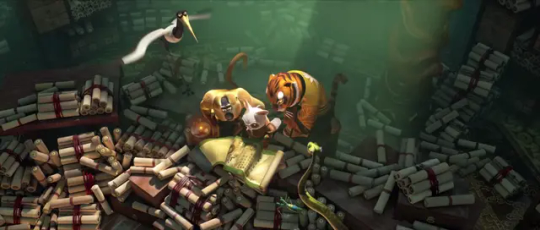
Identity crysis
What made me question the film’s identity the most however is the story.
This 4th film felt like a 1st installment rather than a sequel. It conveniently disregards everything from the previous movies that would contradict its plot and world.
The film immediately starts with Shifu coming out of nowhere and saying Po has to choose a new Dragon Warrior at that very moment. Not only did this feel incredibly random, but it’s also thematically incorrect.
First off, why is Shifu saying this? Why would he want Po to pass on his „title” if it's destiny? Why would he want him to do it now? Why did he not even consider ANYONE FROM THE FIVE and instead got 5 randos as candidates out of the blue?
The issue with the whole premise is incredibly flawed. Let me explain…
Po was chosen as the dragon warrior in the first film. There he proved his worth as such. The key to this is that he is the chosen one because it’s his destiny to deal with threats that no one else can.
This doesn’t necessarily mean that he is the best. He is the guy who is and will be in the right place at the right time, with the right tools to deal with threats that no one else can deal with. But I digress, it's a different topic.
The point is that Po’s role as the Dragon Warrior is his destiny. The „title” merely represents that role in the world. So you can pass the title to anyone you want, but that does not change the fact that due to destiny, it’s still going to be Po’s role.
This is not just a coincidence though. Po has shown many times that he has a very open view of the world. This is then combined with his traits of being is warm, outgoing, energetic, friendly, goofy, and unorthodox. He represents the Dragon, Yang in the Yin Yang.
All of this is important to understanding why there is only 1 dragon warrior, and that is Po. End of the story.
The film however completely throws all of this out the window and goes with the new Dragon Warrior plot anyway.
That means the new Dragon Warrior is literally right there next to him. Master Tigress.
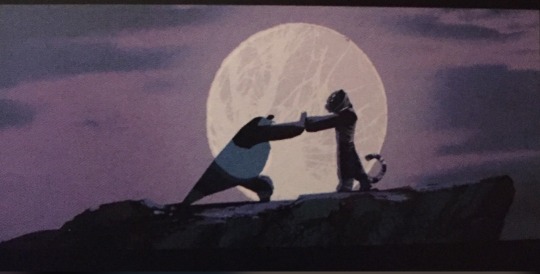
Now you might be asking why that would be the case.
This film, although throws out all the symbolisms of the previous films, still shouldn’t disregard the other characters that are around Po.
The 2 characters work like the 2 sides of the Yin-Yang, as complementary forces. They are opposite forces that need each other in order to create balance.
Her influence is extremely necessary throughout the three films, particularly the second and third. It is her companionship, her support, and her constant push against Po’s natural instincts that lead to the best outcome.
Po has achieved a lot of spiritual enlightenment and character development. A lot of it through his own means, but without Tigress he wouldn't be where he is right now.
The Yang is the strongest when it contains the Yin, and the Yin is the strongest when it contains the Yang.
But this dynamic goes both ways. Although we mostly see the effects of this relationship on Po as the films focus on him, it has also changed Tigress. This leads to her opening up more and being more expressive as the films went on, giving us glimpses into the compassionate person she truly is.
While symbolically she is not the dragon, the 4th film establishes that it doesn’t care about the symbolisms or anything that the previous films have established. So naturally a character that compliments Po this well, should be put into the spotlight and get the character development that she deserves. A character that went through serious changes, but is still left incomplete. You might as well make her the new Dragon Warrior then.
She - altough deserved the title the most even in the first film - lacked the ability to see the world from a perspective that's required to handle certain situations. The Dragon Warrior is way more than just being the perfect warrior. Po's presence was necessary for her to change her attitude. Leading to her slowly becoming her best self. Knowing all of this, it's not such a wild thought that if there has to be a new person who takes over that role, then Tigress would be a great choice for that.
But what is there for her to learn from Po? Spirituality.
Tigress has always been a grounded, by-the-book character. This can be mostly attributed to her upbringing. Her changing and becoming more open, seeing things differently would have been something interesting to explore, and this would also take care of the issue of the „new trilogy” copying the original trilogy’s main character development.
However, the film completely ignores her existence, and the new Dragon Warrior is instead a random Zootopia fox.
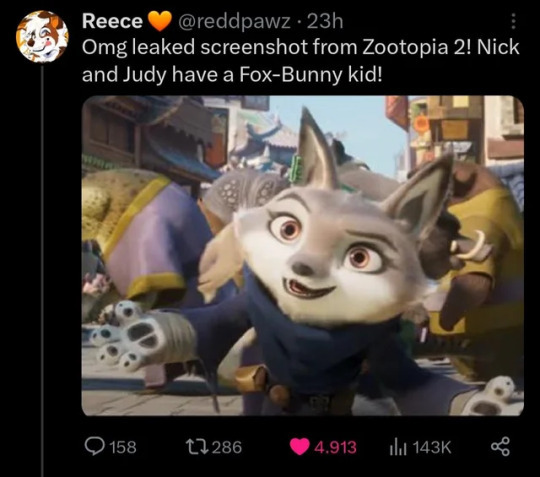
The (new) deuteragonist
There is so little to say about Zhen. The best thing I could compare her to is an untreated wooden board.
It’s rough, full of splinter, and there are many like it. Probably one of the most cliché characters I have seen in a very long time.
She is generic, has an overused „misunderstood fox thief” trope, and a character arc that is so predictable that we all knew what was going to happen just from reading the film’s synopsis at the beginning of 2023.
Her backstory is a copy of Tigress’ except if Shifu was evil. An orphan who is taken in by a master who emotionally neglects her. Said orphan doing what her master wants in order to be loved/accepted by said master. Except that Zhen doesn’t seem to have any attachment or loyalty to the Chameleon. So the „Sad backstory” fails to garner any sympathy towards the character.
Her dynamic with Po is non-existent, which is why their „friendship” is forced. The creators tried so hard to make the two bond, that they forgot to give them time, shared experiences, or anything that would resemble an emotional connection between them. They just quickly went over everything that they have in common in a dialogue and that’s it. There was no prerequisite completed that would make Po care about Zhen or vice versa.
Furthermore, Zhen doesn’t fit the traits that the dragon has, she is not spiritual either or has an open view of the world. So why is she the new one then?
And I wanted to avoid talking about this, but the character is a textbook Mary Sue.

per wikipedia
Zhen is more than capable in a fight to keep up with Po, even though it was not shown why she is so good at fighting. One thing is for sure, she shouldn’t know Kung Fu as she certainly didn’t learn it from her „master” the Chameleon if the film’s plot has any consistency.
She is not only able to manipulate Chi, but also to use Po’s staff without knowing anything about either of those.
A previous character’s role being retconned so that she can take it for herself (See the rant about the Dragon Warrior title above)
She always gets along with characters that matter, getting what she wants.
No real character drawbacks.
A throwaway character like this, should be a minor support character, not the new main protagonist for crying out loud.
Her inadequacies are so blatant as a character, that no wonder they didn’t even want to have at the very least Tigress in the film as Zhen would immediately become irrelevant to the audience. They put all the spotlight they could on her, at the expense of the story, and in the end achieved nothing in return.
Tell me with a straight face that a character that has an entire movie focusing on them - who still remains a generic, boring character by the end, without any story potential - should be the new main protagonist. The fact that most people don’t even refer to the character by her name, but by the actress’ name Awkwafina should tell you everything about how memorable she is.
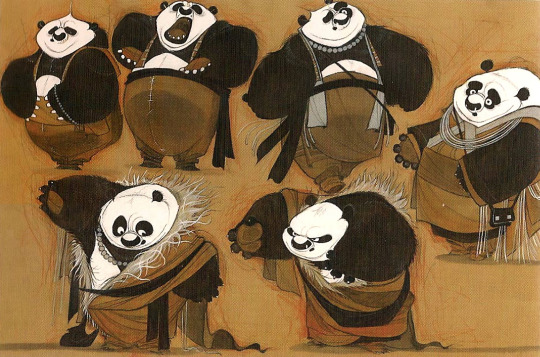
Most new characters and animal designs don’t fit the KFP art style.
A good example of this is Zhen.
This is how a fox would look like in Nico Marlet’s KFP style:
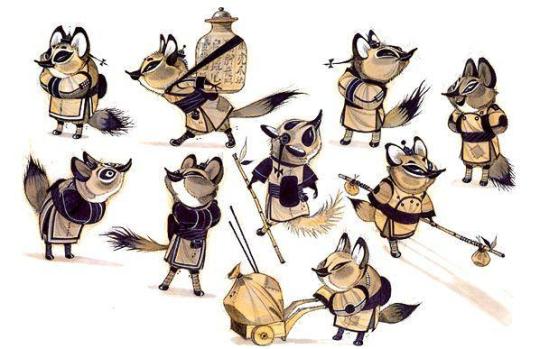
And this is what we got:
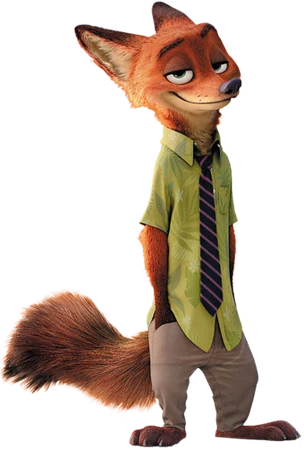
Sorry, wrong picture. I meant this:
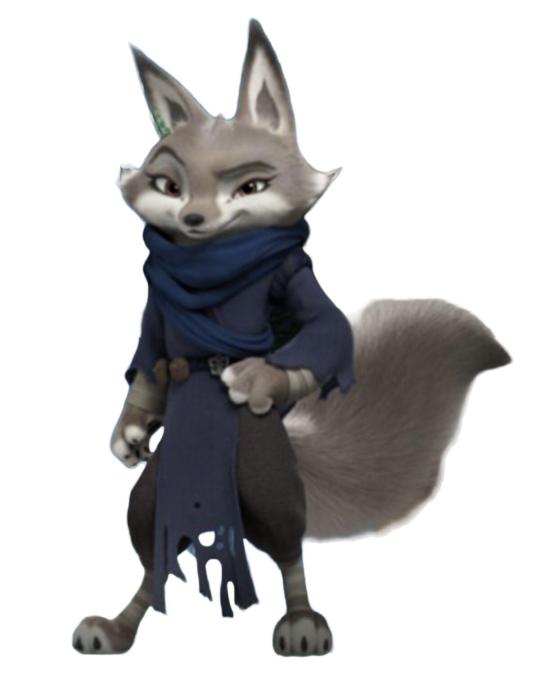
Now, I’m not a character designer, or a professional artist, I only draw a couple of his characters, but I can see that this is way too far off from his work. If not from personal experience, then from the interviews that Nico Marlet himself gave.
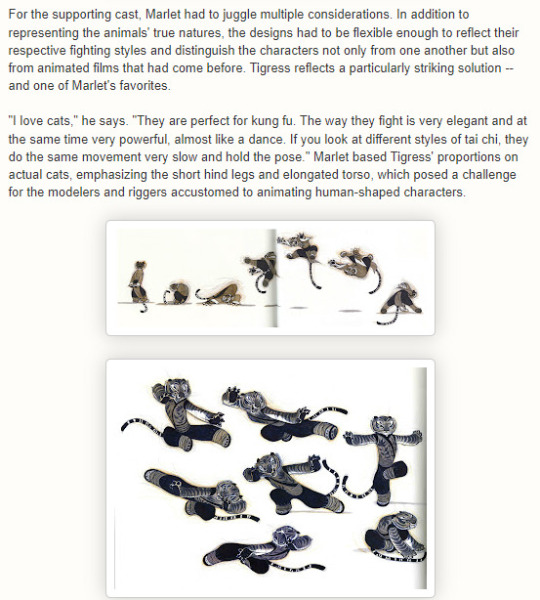
The same issue applies to the villain of the film, the chameleon, but atleast with her they tried (somewhat).

The Villain
They say a film is as good, as its villain. This seems to be true in the case of this film too.
The Chameleon sucks.
She has no connection to anyone from the cast. She has no emotional leverage or pressure on the cast. She is not scary or powerful enough to make the audience care about the cast. Her motivation is so terrible, it might be one of the reasons why the Five was kept out of the film because their mere existence single-handedly demolishes her reason for breaking bad.
Outside of this, the character is unoriginal and uninspired. She basically can “lick” people and steal their Kung Fu? I honestly don't know how to put this into words because it doesnt make any lick of sense (I did the funny). If anything it's a budget version of Kai.
They didn’t even bother to give her a name.
What I will say though is that Viola Davis did what she could with what she was given. I found it amusing that she managed to give the chameleon those serious villainous vibes, while at the same time, the character is a joke. If that’s not a testament to the voice actor’s abilities then I don’t know what is. She was definitely wasted on this role.
As for the “returning villains”. I knew they were only there for cash-grab from the moment they said that all of them would return. Shen, is dead. He is not a Kung Fu master, he doesn’t have any connection with Chi, and he hasn’t been banished to the spirit realm. Then there is Kai, whose soul/spirit doesn’t exist anymore.
The only one that could ever return was Tai Lung. However, due to the gravity of his character, if he does return it has to be done perfectly regardless of what direction his character takes.
Now, many of us knew from the start that whatever they were gonna do with him would be bad (I mean there is a massive beef between Tigress and him, and yet she is not even in the film), but I think I speak for all of us when I say that they managed to somehow lowball it even worse than expected.
Basically, the Chameleon brings him back from the spirit realm, licks the Kung Fu out of him, he says like 3-4 lines, and returns to the spirit realm…. what the actual f*ck.
I’m sure I don’t need to go into a 10-paragraph rant on how much storytelling potential was wasted with this, because everyone knows. From reconciling with his dad, to her little sister having a crazy beef with him, to having to accept all the wrongs he did, accepting that he is not the Dragon warrior etc. etc. etc…
There was always only 1 chance of bringing him back. If he came back in a new film or show (again) it wouldn’t have anywhere near the same impact as it should, and it would also feel weird to the audience.
DreamWorks, you had 1 chance to bring this guy back, and you wasted it all on this film.
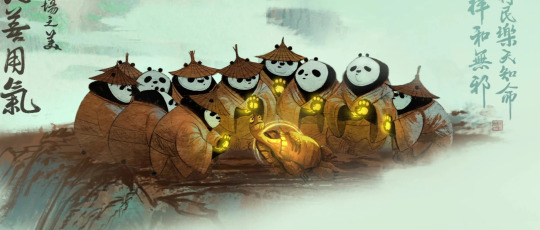
The non-existent magic system.
Or rather, how this film didn’t care about it at all.
Kung Fu Panda has a relatively grounded world. It’s animals that do Kung Fu based on their natural abilities. The closest thing we got to supernatural was Chi, but it was well handled in the 3rd film in my opinion.
Chi is life force and not magic. This means if you use it, you are exhausting your own life force. This means you would only use it in certain situations, such as healing someone who is mortally wounded, or perhaps to enhance an attack in a desperate fight.
The film doesn’t care about this and handles it as just a regular, inexhaustible force of energy. This can mostly be seen with Po as he uses it whenever he feels like it.
The other type of magic is what the Chameleon is using. It’s not explained, or shown how it works. It’s just there to further progress the plot so that the character can take the Kung Fu from others. (Seriously, how does that work?)
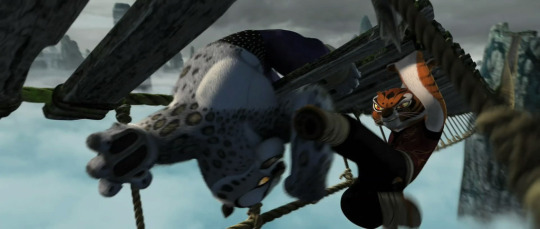
The Kung Fu action
The fight scenes were also a downgrade compared to the previous films.
In KFP 4 they felt less energetic, less grounded, and overall too cartoonish. As an example, Po can jump ridiculously high because… I don’t know, I guess the film just ignores the fact that he is Panda who sometimes even struggles to pull himself up to a rooftop.
The previous films incorporated the strengths and weaknesses of the animals that fought. Po is not very mobile, but he is very durable, and his fighting style compliments this. However, when he really needs to get somewhere, his lack of mobility is then offset by his friends, the Furious Five.
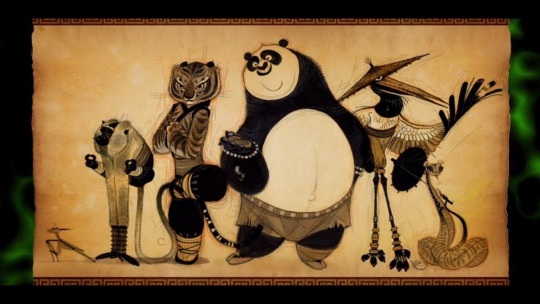
The Furious Five
Their absence can be severely felt throughout the movie. That is because in their place was a generic character that had forced interactions with Po.
They have great synergy with him, that cannot be replicated, however minor their role might be sometimes. They serve as a great way to fill in those empty spots in the story, and to elevate the villain. Additionally, their fight scenes are entertaining and help to spice up the choreography.
Although they are great companions, if the film really doesn’t have the time to spare for them, then it's understandable if they aren’t around. However the same cannot be said about Tigress.
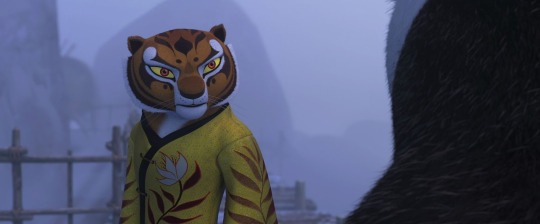
A Kung Fu Panda film has to have Po and Tigress interact, due to the reasons already explained above regarding her, and also because of the following:
They are direct opposites, which is why their relationship is so entertaining, regardless if you look at them as platonic best friends, or as a potential couple.
Po is warm, outgoing, brash, energetic, friendly, goofy, and unorthodox, however, he is also serious when needed. While Tigress is introverted, calm, calculated, passive, and intuitive, but deep down she is also a very compassionate and conflicted person that we rarely see. This is then in conjunction with the emotional bond that the previous films have built up between them. These are the reasons why just putting these two in a room is enough to create entertaining scenarios. They add a lot of fun, heartfelt, and emotional moments to every film.
Whenever Po is facing a problem, she is right there to help him through it, whether by talking it through or by beating some sense into him (literally).
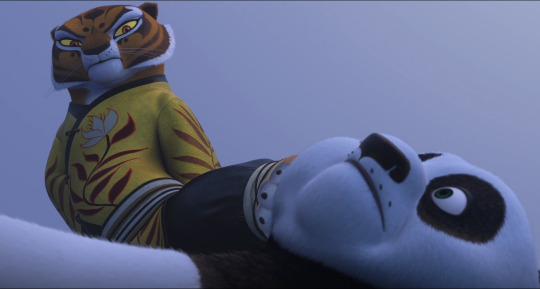
She has always been quintessential in Po’s development and motivations.
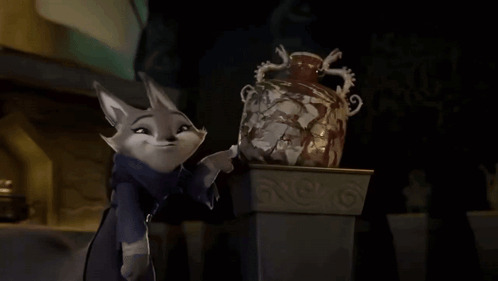
Memberberries, Memberberries everywhere…
It was jarring to see the film disregarding the existence of the previous movies to justify its plot, but at the same time heavily relied on tropes, and scenes from said films. I’m not kidding when I say that there were moments that were ripped straight out of them.
One of those moments is the standoff between Po and Zhen before the final fight. Zhen wants to stop Po to avoid him getting hurt, but the fight ends with her hugging Po….
Yeah… it was a blatant copy of the prison scene from the 2nd film. However, I think the 2 scenes here perfectly encapsulate why the previous films worked, and why the 4th film doesn’t.
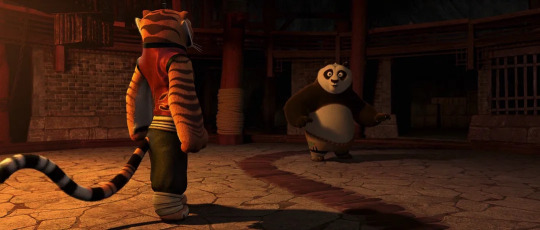
The prison scene in the 2nd film was essentially an emotionally unstable Po being held back by a caring Tigress. Po is so focused on getting to the truth that he forgets the reason they are there, and would put his and his friends’ lives in jeopardy to know what happened to him and his parents. So much so that Po was ready to get beaten to a pulp by Tigress instead of staying down there and waiting until the Five finished the task.
But instead of that happening, Tigress saw how lost Po was, and realized she needed to calm him down to help him understand their situation. And so the person who has always been portrayed as an unfeeling, hardcore, essentially perfect warrior gave Po an unexpected hug and told him he is too important for her to lose him.
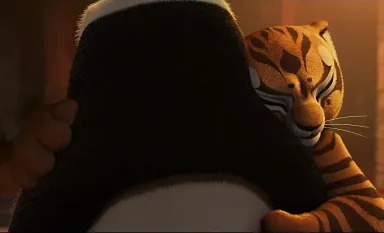
This moment has gravity and weight, because of how she is perceived, because of how Po views her, and because Tigress was forced out of her comfort zone to emotionally connect with Po, to help him. It’s a moment of pure comradery and care towards each other that ascends the situation they are in. It’s a moment that in many ways defined their relationship going forward.
In comparison to this, the scene that copied this in the 4th film has none of the emotional underlinings that I discussed, and so it falls flat and feels cringe rather than heartfelt and warm. This is mainly due to Po and Zhen having no connection, bond, or reason to care about each other. But then there is the other element that I discussed when talking about the villain. Po is in no real danger, and it never felt like he was.
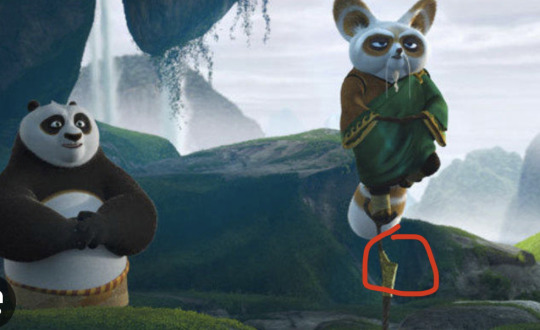

Production
From the early leaks, it was blatantly obvious that the production of this film was rushed. Between the artificially forced plot, the generic character designs, the non-existence of the Five, the lack of time, money, commitment, and care was apparent.
However, due to an interview that the Co-director did with some folks on the subreddit discord, light was shed on the nightmare that was the production. I won’t go into details, as everyone should read the Q&A for themselves, but I’ll touch upon a point that was brought up as an excuse for this film turning out the way it did.

(this is a real concept art from the production btw)
Some are saying the reason the film turned like this was due to the budget restriction. That they simply didn’t have the money to have characters like Tigress return due to Angelina Jolie costing a ridiculous amount of money.
But then I have to ask: They had the budget for characters like Shifu (Dustin Hoffman), Po’s dads (James Hong & Bryan Cranston), Tai Lung (Ian McShane), who in the end turned out to be completely irrelevant to the story, but not at the very least for Tigress (Angelina Jolie)?
I’m not saying that you cannot make a story with these characters, because you obviously could make a great one. What I’m trying to point out is if you have such a limited budget, are you really going to blow it all on actors who play characters that essentially add nothing to the story? This is why I call bullshit on them not getting at least Angelina Jolie back to play Tigress.
Let’s not even mention how you could always recast these characters anyway (although it's clear that the execs are the ones forcing the use of A-list actors).
So for the sake of the argument, let’s come up with a story, that has a reason to exist, has characters that you can do something with, and fits the budget that you are given.
For me - considering that this film was essentially a buddy adventure film - it's an easy task. Just have Po help Tigress explore her origins. I know it's cheesy and basic, but at the very least you have what’s needed for a decent story that would be able to expand on a beloved character, and even help develop Po into a spiritual leader as he has to aid her best friend.
Another idea is what my friend and I had come up with. Have Po bring Lei Lei (now much older, and is a student under him and Tigress) on an adventure. You wouldn’t even need Tigress to appear in the film, because these characters would reference her many times. Lei Lei is a copy of Po in the sense that she wanted to do Kung Fu because she puts Tigress on a pedestal. Because of how influential she was in her life, Lei Lei’s personality is a copy of Tigress’.
I’m just shooting ideas here, but at least these wouldn’t ruin the continuity of the franchise and would be able to navigate the studio limitations that the creators had to face. (from the ones we know of).
"Limitation is the mother of creativity"
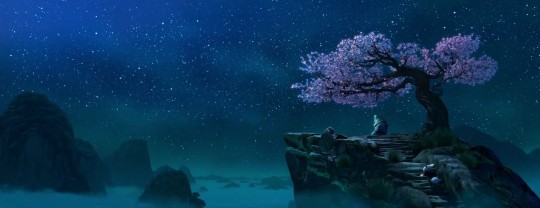
KFP 4 was a shallow, artificial story that didn't add anything to the franchise, only degraded it and stripped it of it's remaining value. It's missing the foundations of a KFP film, such as the heart, artistry, and warmth. It's not unexpected as none of the original brains worked on this film.
So what can be expected from this franchise going forward?
Well, not much honestly. It was a weak attempt by DreamWorks to continue the main storyline, not for the sake of the story, but to milk as much money out of it as they can. Even though with a little bit of effort they really could have at least made a good film in the end. However, between the incompetence of the decision makers, the rushed production, and the new people not knowing much about the franchise, that was never going to happen.
The only thing that we can hope for is a spinoff (which is about a decade late at this point), that focuses on Tigress. It’s the only way I see anything for this franchise going forward and hopefully, this film served as a wakeup call for the executives.
Thank you to those who had the patience to read through my inessential rant. Let me know what you guys think about the film.
256 notes
·
View notes
Text
Mulder's Heart: Alluring Temptations, Denial, and the Slow Burn

In the novelization of Darin Morgan's episode War of the Coprophages (post here), Dr. Bambi Berenbaum is described as "the most beautiful woman that Mulder has ever seen" (loosely quoted, thank you @wonderxphile~.) The thought struck me that, perhaps, it's not an invention or interpretation of the novelist's so much as an offshoot of the root of Mulder's romantic inclinations-- specifically, ones that relate to his self-imposed celibacy.
During the early years of the show, David Duchovny described Mulder's choice to remain single in a particularly singular way: that Mulder was so dedicated to his work that any relationship or life outside of it would feel like cheating. As intriguing as that thought is, another crops up: if that be the case, why was he almost drawn off-course by various women on the show?
THE DESIRE OF THE EYE

All but one of Mulder's short love interests are narratively sexual characters. Phoebe Green and Diana Fowley were exes, both intending to seduce, distract, and control his focus away from the mission. Kristen Kilar and Bambi Berenbaum were two beautiful women that drew and attached his eye immediately. Lastly, Melissa Riedel was a bit of an outlier who still exuded the same pull as the other four: a commonality with Mulder-- one who "understood" him in ways other women hadn't (or wouldn't.)
If his work is his wife, then they are his (potential) mistresses.
Mulder fell hard and fast; but snapped out of his rose-colored fog just as quickly. Each woman didn't withstand the test of his work, always turning their back on him for someone else, someone "greater."
Except for Dana Scully.
SLOW BURN AND DENIAL

The difference between Scully and the other women was that she didn't knock Mulder's socks off at first sight: baggy suit, green haircut, cutting science, and fire-breathing accountability challenged and won his trust before it won his heart.
Be that as it may, within two episodes Mulder had very, very quickly shifted his estimation of Scully from spy to maneuverable hindrance to partner.
By Squeeze he was undeniably, irrevocably territorial. While he respected her decision to leave, he would most certainly have continued tracking her down wherever she was working to discuss details of his case, her case, or any tidbits in-between (as depicted by him interrupting her stakeout.)
Season 2 beat Mulder over the head until he realized how closely he tied Scully to the work. In Little Green Men, he needed her encouragement to combat self-doubt; but more importantly, he needed her there with him, by his side. After her abduction in Ascension, he became listless, self-destructive (@cecilysass's excellent meta here), and dispassionate for the work: there was no curiosity or joy of discovery in 3's case-- in fact, there was no joy at all. In One Breath, he tried to barter his life's work for Cancer Man's location, resigning anyway out of sheer guilt. (Later, he tried to sell his soul again, more directly, to save Scully's life in Memento Mori.) By Firewalker, Scully had already eclipsed the work-- which Mulder didn't acknowledge, to her or himself, until Fight the Future-- and he frequently abandoned leads or "the truth" if he thought her life was in danger. Although she had become indispensable, Mulder didn't realize he loved her until later in the narrative.
Still.
Scully acknowledged her feelings, indirectly, at various times through the series; but he only initiated when afraid she'd leave, forever. While genuinely blinded by his quest, Mulder wasn't stupid. Scully fishing for his genetics in Home led him to banter away the conversation, later fixing a chair firmly under the broken lock separating their rooms. Scully bringing a cheese platter to celebrate in Detour didn't grab his attention from the mystery, but it underscored his efforts to deflect her serious topic later in the forest.
Because, at the heart of the matter (the very place he tried to avoid), Mulder lived in bone-deep denial.
In E.B.E., he quips, "I think it's remotely plausible that someone might think you're hot"; in Irresistible, he fumes over no one noticing where "a pretty woman" went; even in A Ghost That Stole Christmas he huffs, "We're not lovers." Maggie Scully ascertained his feelings immediately in Ascension, and Melissa Scully pushed him to acknowledge them in One Breath: "At least she'll know. And so will you." During the cancer arc, he embraces Scully for never giving up, doesn't discuss her cancer unless absolutely necessary, freely offers affection on her deathbed; then afterward, tries to deflect a personal talk in the woods while in shock. Even thoughts of harm coming to his partner-- be it not wanting to consider Scully possibly dying in Piper Maru or the split second of doubt despite evidence when she did "die" in Kitsunegari-- throws up an instant wall of denial.
Mulder knew something was "there" after Melissa Scully made him confront himself-- in fact, he likely already sensed something during his conversation with Scully in Tooms-- but he didn't want to poke around to find out exactly "what" it was. He wasn't ready.
Yet.
"FOX " OR "MULDER"

The women closest to Mulder ended up calling him "Fox" (or "Sullivan")... all except Scully, his abandoned lunch colleague in Little Green Men, and the phone sex operator in Small Potatoes.
Scully herself is an even more isolated case, of course.
When she began to make a personal confession in Tooms, Mulder uncomfortably laughed off her "Fox...": "I even made my parents call me 'Mulder'. So. 'Mulder'." Perhaps that's true (or perhaps not, since his father and mother also called him "Fox.") Regardless, he sensed Scully was letting her guard down; and, fearing she was opening her heart in another direction, tried to fend off any loving regard. Scully surprised him, however: "Mulder, I wouldn't put myself on the line for anyone but you" incorporated his preference, expressed her loyalty, and was a far cry from a lovesick oath. He teased the moment away, pleased; then was, by turns, caught, unsettled, and relieved by her repartee.
From that point on, his moniker began to change from professional shield to personal endearment.
But what does this have to do with Mulder's mistresses?
SCULLY, HIS LIFE

Scully was inextricably linked with the work after her return; and, whether Mulder had fully accepted his love for her yet or not (and I'm beginning to think he hadn't fully until her cancer diagnosis), she was now his life. Drawing her away from a "normal life" and dragging her dog along on a lake monster excursion became an expected, routine part of his weekend.
Bambi-- the "most beautiful woman"-- appeared during this chummy, Season 3 phase. When larger questions and greater fears shook stability from under his feet, Melissa Riedel-- the alleged soulmate-- made her (apparently) destined entrance.
Both women fell into a pattern Phoebe and Kristen set: bold, shiny new possibilities; then solace-seeking and grasping insecurity. That pattern, however, was broken during the cancer arc, as exemplified by the exception to this general rule: Diana Fowley.
ESCAPING THE SNARE OF THE FOWLER

Phoebe, Kristen, Bambi, and Melissa effortlessly lured Mulder's focus from his own aims. Not permanently; just enough to create a foil for the work-- a.k.a. Scully. Mulder suffered a few burns from his false romances (post here): passing out from smoke inhalation, watching three buildings go up in flames, and being dismissed from the life of each romantic interest. Diana, too, betrayed him; and Diana, too, was tied to the blaze in his office.
However, Agent Fowley was not sought after like her predecessors. She was also the first to notice a change in Mulder.
When she arrived on the scene, boldly hitching her wagon to his theories and his work, she expected him to readily accept, nay beg, her back on the files. Instead, Mulder laughed off her concerns about Scully, gushing over his new partner's innate ability to make him "work for it." Further, he stuck by Scully's side when his ex was hospitalized, only straying in The Beginning when Diana created an elaborate ruse to separate the two. He didn't initiate or reciprocate her kiss in One Son; and he was more baffled than beaming when "she" wanted to play domesticly-ever-after in Amor Fati. In short, Mulder was not drawn romantically to Diana, at all: in fact, he was wary. Friendly, but distant.
She'd missed her chance.
If Diana had swooped in sometime before Memento Mori's unification, she could have exploited the gnarly feeling that had been building since early Season 4, or widened its distance post Never Again-- a distance that had been building since Mulder's sloughed-off remark in Home and unwitting partner replacement in The Field Where I Died. (More accurately, if CSM had bothered to pay close attention to his lab rats, he'd have noticed a weakness in their partnership and sent in his super rat to exploit it.) As it happens, she did not.
MULDER'S HEART

What does this mean for Mulder and Scully?
At the outset, I believed Mulder learned the depth of his love for Scully during the events of One Breath-- now, however, I'm convinced that's only half true.
Scully had already replaced the work's importance in his life, but neither understood the depths of his reliance on and devotion to her. Mulder was still gut-reacting, not wanting to delve too deeply into his heart to find the truth there. Never Again gave him a great and terrible shakeup because he'd taken Scully's place at his side for granted-- he'd thought "This work is my life" also extended to her, and that she'd glanced at his offer and was preparing to reject it. Mulder was living in full-blown denial: denial so deep that only the incurable, inescapable possibility of her death could tear his blinders off.
After her diagnosis, that denial was blown to pieces; and, afraid to face the ramifications of his realization, and her remission, he kept fleeing. As Scully says in Dreamland I, "We, we just keep driving."
That brings us back to Phoebe Green-- dangerous allure-- and Kristen Kilar-- mutual mourning partner-- and Dr. Berenbaum-- the "most beautiful woman"-- and Melissa Riedel-- tortured twin soul-- and Diana Fowley-- ancient history. His heart was free in Fire, unconsciously grieving in 3, charmingly in denial in War of the Coprophages, seeking Scully in other lives in The Field Where I Died, and beating only for her in The End.
CONCLUSION

A very interesting, complicated man, indeed.
Thanks for reading~
Enjoy!
#txf#xf meta#meta#mine#DD#quotes#Phoebe Green#Diana Fowley#Bambi Berenbaum#Kristen Kilar#Scully#Melissa Riedel#S1#Fire#Pilot#Ascension#S2#3#One Breath#S3#War of the Coprophages#S4#TFWID#Memento Mori#Redux II#S5#Detour#The End#FTF#The Beginning
127 notes
·
View notes
Note
If Richard was a vampire, what kind would he be? Like would he sparkle like from Twilight? Would he come from The Lost Boys universe, or Fright Night or Interview with a Vampire?
This has been bugging me for weeks, I want to write a vampire!Richard fic but I can't figure out the best fit for him, I'm not sure if this has been asked before tho so I apologize in advance of it has! Also feel free to do the rest of the Ramm boys if you'd like!! I love hearing your opinions!!
I wanted to ask the vampire and RZK knowledge queen, thanks!! 🥰
Hi 👋
⚠⚠⚠ This will be long. I am so sorry. ⚠⚠⚠
Oh dear, dear Anon, now you've really stirred something up here... Once I start talking about vampires, especially in connection with Richard, it can get very long, very detailed, and very rambling (as you see below). On top of that, it’s the kind of thing that interests about 0.2% of this fandom, while the rest probably falls asleep halfway through. BUT WHO CARES. (well, I do...) I’m still going to answer extensively, as I have quite a few thoughts on this.
I’ll first introduce the key traits of various vampire races across different vampire media (series, films, books), including some of the ones you mentioned and a few I myself find important (I just chose a few, otherwise this would've gotten endless). I’ll use bullet points to make things easier to follow. Then, I’ll compare those traits with Richard’s aesthetic and estimate which characteristics would suit him best.
Some vampire characteristics (I forgo mentioning the teeth since at least this is pretty similar):
Interview with a Vampire (book by Anne Rice & movie from 1994) vampires stop aging after they're turned - pale, with luminous skin - require human/animal blood to survive - transition: through through the exchange of blood with a vampire - exposure to sunlight is fatal (burning skin etc), fire is also deadly - crosses and holy water have no effect on them - no reflections in mirrors - sleep not really necessary, still rest during the day

-> a quite typical and traditional depiction of vampires.
The vampire diaries (books by Lisa J. Smith and show from 2009-2017) stop aging after their transformation - eyes darken, veins appear beneath them, and their fangs emerge when feeding or angry - rapid healing abilities - human becomes a vampire by dying with vampire blood in their system, followed by completing the transition through feeding on blood - sunlight burns and weakens them, solution: daylight ring made by a witch - weakened by Vervain (burns their skin) - die by stike through the heart as well as from beheading, heart ripped out of their chest, fire, werewolf bites - Vampires can compel humans to obey their commands - can suppress their emotions by turning off their humanity - "original vampires" as the origin of all vampires

-> a more modern interpretation with some loopholes for the vampires
Black Dagger Brotherhood (books by J. R. Ward) larger and more physically imposing than humans, excellent fighters - eyes change color when they feed - extraordinarily long lifespans, but they are not completely immortal (can be f.e. killed by explosions) - can only survive by drinking the blood of the opposite sex from their own species - Vampires are born, not made: transition from mortal to full vampire during their mid-20s, is extremely dangerous, often fatal - Sunlight is deadly - Vampires form intense, lifelong mating bonds to their "shellans" - strong sexual drives, closely tied to their feeding habits and emotional connections - require downtime during the day - some vampires possess unique powers (mind control, telekinesis)

-> a quite dramatic and very emotionally charged interpretation
The Lost Boys (movie from 1987) maintain a human appearance, but reveal monstrous features when feeding or fighting - do not age and can live forever - can be killed by a wooden stake to the heart, decapitation, or severe injuries - possess superhuman strength, speed, agility - can fly or hover - transition by drinking vampire blood - require human blood to survive - sunlight is deadly - garlic and holy water burn and repel them - no reflections in mirrors - form groups or "packs" - killing the vampire "leader" (head vampire) can reverse the transformation for those who haven't fully turned

-> mixture of traditional and more modern-fantasy elements
Twilight (books by Stephanie Meyer, movies 2008 - 2012) pale skin that sparkles in sunlight - eyes change color based on their diet (gold: animal blood, red: human blood) - do not age and can live forever - superhuman strength, speed, reflexes - heal instantly from injuries unless they're torn apart and burned - human becomes a vampire if bitten and exposed to venom - are not harmed by sunlight, yet prevent it due to their skin - bodies are described as hard as stone - do not sleep or rest - some vampires possess unique supernatural powers (telepathy, precognition, emotional manipulation) - form covens or families - not affected by garlic, holy water, crosses, or wooden stakes

-> a modern and romantized way of characterisation
Dracula (book by Bram Stoker, movie 1992) pale with blood-red lips (book, movie in the beginning)) - do not age and immortal - possess superhuman strength, speed, and heightened senses - have the ability to hypnotize or mentally control their victims - require human blood to survive - human becomes a vampire by drinking a vampire’s blood after being fed upon repeatedly - sunlight weakens them, yet does not kill them immediately - can be killed by a wooden stake through the heart, decapitation, or exposure to sunlight and fire - are repelled by crosses, crucifixes, holy water, and consecrated ground - no reflections in mirrors - less powerful during the day, prefer to rest in their coffins filled with soil from their homeland - can summon and command nocturnal creatures like bats, wolves, and rats

-> most likely the most famous characterisation of vampires
Nosferatu (movies from 1922, 1979 and 2024) either rodent-like appearance (1922, 1979) or grotesque rotten corpse aesthetic - do not age and immortal, yet appearance seems to change through the years - require human blood to survive - completely destroyable by sunlight - is associated with disease and pestilence - must sleep in coffins filled with soil from their homeland - raw, primal desires very evident (2024)

-> based on Dracula, yet still different (and unnecessarily hot in case of the 2024 version)
Now on to my small evaluation, which traits I could see in Richard:
Well, where do I begin? I’d most likely place Richard, on one hand, in the rather traditional universe of Interview with the Vampire. It fits his at-times very sophisticated demeanor - "very gentleman" (to quote him), very classic, very seductive. At first glance, he would fit perfectly into that world, also because it feels like it aligns with the dramatic stage persona he occasionally adopts.
Nevertheless, other traits also suit him if we indulge in vampire fantasy: the ability to manipulate others with unbeatable persuasion (compelling) from The Vampire Diaries, the pack mentality from The Lost Boys or Twilight when you think of his loyalty and love for the band and his family. Curling up at home with movies or retreating to his studio to recharge or find refuge - leaving aside the morbid aspects, this reminds me of the rest accommodations in Dracula or Nosferatu. And lastly, I also see him fitting well into the Black Dagger Brotherhood universe. The emotionality that sometimes overflows, the mutual loyalty among the brothers, and not least the strong attraction between the sexes, along with the significant focus on emotional and physical connection and lust.
As you can see, I can’t quite decide. Hopefully, this helps you anyway 👀
Some fitting gifs to add to the mood:






As for the other band members, I’m torn because I don’t see all of them fitting into the vampire direction when it comes to a fantasy AU. The one I could most imagine in the vampire realm would be Schneider - most likely in the Vampire Diaries direction. It’s just a feeling that this would suit him: some classic elements combined with loopholes that would allow him to enjoy life as a vampire.
Thank you for your attention, if you made it this far 😌
#the way i sighed as i typed out “sparkles in sunlight”....smh#rammstein#richard kruspe#ask#vampire posting#iwtv#black dagger brotherhood#dracula#nosferatu#twilight#the lost boys#the vampire diaries
35 notes
·
View notes
Text

Kneeling Statue of Kaemked
Old Kingdom, 5th Dynasty, ca. 2494-2345 BC. Tomb of Urirni, Saqqara necropolis. Now in the Egyptian Museum, Cairo. CG 119 The statue depicts Urini’s funerary priest, Kaemked kneeling in a position of worship, clasping his hands on his knees, wearing a short kilt, tied with a belt. Kaemked was the funerary priest and is shown here offering devotion and homage to his master. The pose of a kneeling man was rare for this period and is an example of the artist’s desire to introduce innovation, resulting in a work of originality and excellent quality. Read more
109 notes
·
View notes
Note
Back from the dead again and I can't stop thinking about the character potential regarding Nanna & Forseti (if Norse saga was made into a trilogy).
For me, I imagined the relationship between Baldur and his family would be complicated/strained (and possibly divorced form his wife). Because of Baldur's invulnerability (and insanity), he's unable to "give" any form of love towards his family(?).
Just imagine the angst that Baldur is unable to feel any form of affection from his own family, especially Nanna (unable to feel her hugs & kisses) 💔.
Also!- I found a few fan depiction of Nanna in GOW before Ragnarök came into existence. Most of them are deleted off of Tumblr, but they're fun to imagine! :)
(Art by kelseydoesart)




Those are some very intriguing and unique pieces in terms of how they portray the side of Baldur that the series/SMS never got to show us. And, let's face it, chose not to because Baldur was reduced to a plot device and driving force in everyone's story but his own. Introducing a new layer to his character in the form of his marital relationship and family of his own could have been an excellent way to flesh out his existence outside of the decisions of others: be it Freya's removal of his agency out of love and misguided desire to protect him no matter the cost. Or Odin's toxic influence and Baldur falling under it completely when in his view Freya became strictly antagonistic due to the invulnerability spell she'd cast on him and Odin began to look like the "lesser evil" in comparison to Baldur's traumatized mind.
From canon, we also know that Odin's manipulative and abusive tactic of choice was to isolate his victim, both as means to control them and as means to "punish" them for refusing to submit.
First, he tried to convince Freya she would need no one but him after their marriage drove the wedge between her and her people. Said people made it disturbingly easy for him to perpetuate that narrative because they themselves adhered to the thinking Freya was meant to exist solely for their benefit and their own good. That if she chose to exercise her free will despite their disapproval by marrying Odin no matter the scorn she was met with - including from her own brother - in hopes it brings peace between the Aesir and Vanir then her decisions and marriage - and consent - became a "condition". Which she could never revoke, not even when her emotional and physical safety were in jeopardy.
Ultimately, Freya's people and family (on both Vanir and Aesir side) subscribed to the very same narrative that Odin aspired to create to control her and Baldur: that she is the "treacherous" type who betrayed her people and then betrayed her husband and her daring to exercise her agency resulted in the prolonged war. Odin was, thus, just another "victim" of a selfish and scheming femme fatale who was "wronged" by her.
Odin's decision to trap Freya in Midgard without her powers was a continuation of that isolating pattern (this time in the form of punishment, as noted above) - and yet again her people eagerly perpetuated it because none of them bothered to seek her out and learn her side of things. None of them also bothered to help her break those abusive ties before she met Kratos. Who was the only one actively going up against Odin's narratives about Freya even when she was justifiably angry with him and tried to kill him.
Moreover, Kratos is the only one who openly told Freya there was "no shame" in doing what she thought was necessary to protect her people.
Baldur never got to have a relationship like this in his life, whether platonic or romantic, within the Gow canon. Therefore him having a family of his own could have been exactly the route necessary for his independent functioning. I can imagine his wife being supportive of him and loving him to the best of her ability but as you note, because of Baldur's own inability to feel he would inevitably take distance from his family, seeing himself as unworthy of them and unable to return their love; and hating his mother even more for that.
An adult child faced with a classic situation of a flawed parent who cared (Freya) and a toxic and narcissistic parent who only ever used him for his own ends (Odin), Baldur started gravitating towards the latter; which is typical for such situations. His desire to please Odin (something Baldur had been endeavoring to do, according to Freya, since he was a young boy) was amplified by his distance from his mother and his growing resentment of her. It is a common mindset for a person from a dysfunctional family to grow closer to the more toxic parent due to seeing them as "at least honest" about their disdain and lack of respect for their own child. Rather than the loving but flawed parent who made mistakes because "they claimed to love me but then they hurt me anyway".
Add misogyny into the mix and how women are held to impossible standards in the society in terms of everything including parenting and are thought of as deserving of a death penalty for being anything but perfect in that department. Whilst men can be flat out terrible parents but receive the aforementioned "at least he's honest" get out of jail free card.
With Baldur learning the workings of marital relationship and parenting firsthand he could have gained some perspective on his own parents. He would choose to be an emotionally distant parent (like Odin) instead of taking a risk and daring to show love to his wife and child despite the challenges of his condition/inability to actually feel said love. Because to him, that route would be seen as "the lesser evil" than to try and fail, like Freya did.
If we are going with the HC/scenario that Baldur does return from the dead eventually to finally reclaim his agency and recover, him having a woman who loves him waiting for him and Freya learning she has a grandchild she can do right by (just like she canonically wanted to do right by Atreus because according to her he reminded her of young Baldur) would make a way for a necessary challenge and much needed character development. It would, most importantly, prompt Baldur to do what Freya did - to choose to be a spouse and parent who tries no matter the inevitable mistakes, and to understand where she was coming from eventually.
26 notes
·
View notes
Text


I really cannot express with sufficient fervor how much and more I believe, had Jacaerys lived, he would have basically become Leto Atreides. And I do not mean the visage, but it serves just as well.
'Doomed' spelled on their beauteous cheekbones.
#what pity villeneuve will not be adapting children of dune i would fain seeing collett as leto ii if merely to satisfy mine wicked fantasies#what splendid exemplar of comeliness wit and heart#'tis excellent depiction of:#doomed by the narrative#i shall ne'er cease my prattling on the matter#the fulminations of viserya#how shall i deal#what beauteous soldier poet princeling#jacaerys targaryen#leto atreides#< mine precious requireth a tag#hotd spoilers#—motion picture#dune (2021-2024)
11 notes
·
View notes
Text
While checking around for my “Roman gods are not Greek gods” posts, I found back this tripartition of mythology, which is actually a fact that everybody should kno about if they want to dabble in Greco-Roman myths (especially Greek myths).
We know that, during Antiquity, the Romans and the Greeks thought that there wasn’t just one, but three different types of “theology” - three different views, perceptions and reception of the gods.
The first theology was the theology of the priests and of the state - aka, religion. The Greek gods as perceived and described by religion, as honored through rituals and festivals.
The second theology is the “mythic theology” - what we call “mythology today”. It is a set of legends, folktales and stories that are not part of religion, but rather used and carried by art - it is the gods are seen, perceived and described by the poets, by the epics, by the theater plays.
The third theology is the theology of the philosophers - who used the gods and their tales as images and allegories for various abstract or concrete topics. It is the gods as depictions and description of natural phenomenon, or the myths as a way to actualy exemplify a social fact or explain psychological workings.
For the classic Greeks and Romans, there was a clear divide between those three very different point of view of the gods. It was basically three different versions of the pantheon. This is notably why you will find texts noting that priests disliked and condemned the poets’ mythological works, due to them being blasphemous and making the gods too human when religion described them as perfect ; and it is also why the philosophers of old dissed on and rejected the literary works of mythology as nonsense only good to feed superstitions, because for them the gods weren’t characters or realities, but rather abstract concepts and rhetorical allegories.
This is something I feel needs to be reminded, because today these three different theologies have been mixed up into one big mess - as literary myths are placed one the same level as philosophical “myths” (actually texts taking the shape of myths), and both considered of outmost religious importance. When in fact, things were quite different...
EDIT: I was asked if there was a myth that could illustrate the three different theologies, and on the spot I would say “the affair between Aphrodite and Ares”.
This story originates from the “mythological theology”. It is primarily a story, and a good one. It is the story of a husband who discovers his wife is unfaithful and tries to get revenge, it is the story of an extra-marital affair gone wrong, it is typical set of divine shenanigans ending on a grotesque display of divine humiliation - it is an excellent narrative material for plays and poems (and the legend does originates from poems).
The story was also dearly beloved and reused by the “philosophical theology”, because the philosophers adored the idea of the love between Ares and Aphrodite - for them it was the perfect depiction of how the concepts of “love” and “war” , despite being seemingly opposite, attracted each other and were closely tied. For them, this story isn’t to be taken literaly as “a god cheated on another god”, but rather as “this is an allegory showing that love and war are two sides of the same coin, which is why Aphrodite falls for Ares despite being married to Hephaistos”. But for them the whole net part is just poetic nonsense invented to make people laugh ; or maybe they will reinvent them as a moral, cautionary tale that should be used to warn people of the dangers of unfaithfulness.
And then there’s the “religious theology”, the point of view of the priests - for whom such a story is mockery and sacrilege. You can imagine them saying: “You are making the gods look like fools! Gods don’t cheat on each other, gods don’t get captured in nets while butt-naked, gods don’t even sleep on beds - GODS DO NOT EVEN HAVE HUMAN FORMS IN THEIR NATURAL STATE - what the heck is this bullshit you’re saying, you’re just insulting the gods by turning them into lecherous humans and grotesque clowns for your vulgar story!” (This is a reconstitution and not the actual words of an Ancient Greek priest)
#greek gods#roman gods#greek mythology#greek religion#roman mythology#roman religion#ancient theology
631 notes
·
View notes
Text
The 7 Pillars of Hyakinthou Naos
These seven pillars* act as the core beliefs and values of The Temple of Hyacinthus. These pillars were created in the modern age, not antiquity, and therefore do not reflect upon the beliefs of all Hellenic Polytheists.
*disclaimer at the bottom of the post
Pillar 1: Xenia [ ΞENIA ] - Hospitality
Often translated as 'guest-friendship' or 'ritualized friendship' - Xenia was a core tenant of Hellenic Greek life and Hellenic Greek society.
"Historically, hospitality towards foreigners and guests (Hellenes not of your polis) was understood as a moral obligation, as well as a political imperative." - Wikipedia
As a Pillar of our temple, Xenia means being hospital and inclusive to individuals from all walks of life and lived experiences. Kindness and respect should be shown to all strangers you encounter - and hospitality should be extended towards them (when it is safe to do so).
Pillar 2: Eusebia [EYΣEBIA] - Piety & Worship
Eusebia is a term used to encapsulate our attitudes towards not only our beliefs and worship practices, but also our attitudes when referencing, honoring, or petitioning The Gods.
"One demonstrates Eusebeia to the gods by performing the customary acts of respect (festivals, prayers, sacrifices, public devotions)" - Wikipedia
As a Pillar of our temple, Eusebia means showing respect towards Hellenic Polytheism, Hellenic worship practices, and The Gods. This respect also entails honoring The Gods with worship through prayer and ritual.
Pillar 3: Sophrosyne [ ΣΩΦΡΟΣYΝΗ ] - Moderation
Sophrosyne was a highly valued and praised virtue in the Hellenic Greek world, and was often used as the opposite of hubris. Which was, as it is today, regarded as an undesirable character trait.
"Sophrosyne is […] excellence of character and soundness of mind, which when combined in one well-balanced individual leads to other qualities, such as temperance, moderation, prudence, purity, decorum, and self-control." - Wikipedia
As a Pillar of our temple, Sophrosyne means to not take more than you need. It is a Pillar that reminds us to avoid greed and selfishness, as well as to not allow ourselves to over-indulge to the point of harming ourselves or others.
Pillar 4: Dikaiosyne [ ΔIKAIOΣYNH ] - Justice
Diakaiosyne is a noun which roughly translates to "righteousness, justice" (Wikipedia). Dikaiosyne is also a Daemone (spirit) who was the personification of righteousness and justice, and was closely related to the Horae Dike.
"O blessed Dikaiosyne, mankind's delight, the eternal friend of conduct just and right: abundant, venerable, honoured maid, to judgements pure dispensing constant aid" - Theoi.com
As a Pillar of our temple, Dikaiosyne is closely tied to Social Justice and Progressive ideals. In this Temple, we believe that being an active ally towards disenfranchised and minoritized groups should not only happen beside our religious practices, but is essential to them.
Pillar 5: Sophia [ ΣOΦIA ] - Wisdom
Originally meaning "cleverness" or "skillfulness", in Ancient Greece Sophia would come to be a word that referenced wisdom and intelligence. It also became closely associated with "philosophía" (love of wisdom) which was a term often used by Plato.
"By the Roman Empire, it became common to depict the cardinal virtues [...] as female allegories. Thus, in the Library of Celsus in Ephesus [...] there are four statues of female allegories, depicting wisdom (Sophia) [...]" - Wikipedia
As a Pillar of our temple, Sophia embodies the value of truth, exploration, research, and wisdom. This is not about intelligence, or being able-minded, but instead is about the virtue and value of gaining understanding and knowledge.
Pillar 6: Hekousion [ ΕΚΟΥΣΙΟΝ ] - Free Will
A term that may be less familiar to the wider Hellenic Polytheistic community, Hekousion is a word meaning "voluntary" or "acting of on'es own free will". For it's use in our Temple, Hekousion is meant to be similar to/synonymous with "to eph' hemin" [ EΦ HMIN ]
"Greek philosophy had no precise term for 'free will' as did Latin […]. The discussion was in terms of responsibility, what 'depends on us' (in Greek EΦ HMIN)." - Wikipedia
As a Pillar in our Temple, Hekousion is meant to embody the non-compulsory and non-dogmatic nature of our worship. Worship should always be an act of consent, where one chooses to welcome The Gods into their life.
Pillar 7: Kharis [ XAPIΣ ] - Divine Grace
Kharis translates to English in a variety of ways including "beauty, elegance, charm, grace", "grace, favor, goodwill", and "the grace or favor of the Gods" a voluntary act of goodwill" (Wikipedia).
"Kharis is the reciprocal relationship which sustains divine and human interactions, characterized by a flowing exchange of favor between the Theoi and worshipper." - @errostheandeirene
As a Pillar in our Temple, Kharis is the basis of our relationship with The Gods. This ancient practice of reciprocity is to be upheld by all who honor The Gods, as it is the foundation of our faith.
*Our Temple and our Pillars have no association with with Timothy Jay Alexander (the creator of The Seven Pillars of Hellenismos, who is homophobic and has other allegations of problematic behavior surrounding him). While some inspiration was taken from Alexander's work, we also took inspiration from other sources (as the concept of moral pillars is not unique to Timothy Jay Alexander). Our Temple proudly supports, and has signed, the Xenia Declaration; we hold diversity and inclusivity at paramount importance in our temple. Additionally, the number 7 was chosen to honor our Temple's Patron, Lord Apollo, and is not meant as a recreation of Alexander's work.
#The 7 Pillars of Hyakinthou Naos#The Temple of Hyaicnthus#Xenia#Eusebia#Sophrosyne#Dikaiosyne#Sophia#Hekousion#Kharis#HelPol#Hellenic Polytheism#textpost
40 notes
·
View notes
Text


Classicstober Day 14: Helen (𐀁𐀩𐀛/𒄭𒇷𒉌)
Helen of Troy… Helen Queen of Sparta… Helen Princess of Sparta… Helen the daughter of Leda and Zeus… the face that launched a thousand ships wore many masks over the course of her life but one thing that remains the same is how compelling she remains as a character. Many thanks to @symeona for helping me with her look!
Helen is a character intrinsically associated with her appearance, but early sources do not describe her at all outside of demonstrations of her status. For this piece, I have borrowed from two sources. The first is symeona, who's excellent translations on Ancient Greek color theory informed my take on Achilles. The second was that wretched and accursed fnckboy Ovid, who described Helen's mother Leda as having 'snowy white' skin and black hair. Since Zeus appeared to Leda in the form of a swan, and considering how pale Leda was, I decided to make her somewhat swan-like in appearance, with big black eyes and naturally ruddy lips to seal the deal.
First, let's talk about Helen the Spartan (rendered here in Linear B as 'Eleni of Laconia'). Despite mainly being known for her role in the Trojan War, Helen lived the majority of her life in Sparta and her husband Menelaus claimed the throne of Sparta through her. Laconia and Sparta are some of the oldest sites of Mycenaean culture, so Helen got to be depicted as Mycenaean as all getout. The high-piled hair, the diadem, the open tunic, and the bracelet are all very common in depictions of Mycenaean and Minoan women. She also has very elaborate florets to mark her status. The red fabric and large gemstones mark her wealth too i completely forgot to draw in the necklace she wore in the sketch version.
I mentioned before in my picture of Cassandra and Hector that I am basing the Trojan looks heavily on ancient Hittite clothing, and this is no exception. I know the movie Troy sucks for lots of reasons, but I did like that they made the Trojan theme color this very rich blue so I decided to add that here; dark, rich colors in general are very expensive to produce, so even if it's not red the saturation makes the cloth very expensive and a mark of royalty. I based her clothing and jewelry off a Hittite statue, but I decided to omit the tall hats that Hittite women appear to wear under their veils; I kind of wanted that to represent status, so only Andromache and Hecuba would wear the tall hats if I depict them.
I was not trying to make a commentary with it, but it does strike me how conservative the veiled, tunic wearing Hittite woman looks compared to the open-bodiced Mycenaean woman. That could easily be read into, but I'm just going to leave it as depiction and not try to ascribe any symbolism to it.
The decorative circle around Helen represents several things. Horses feature prominently in her life. The Trojan Horse is the most well known, but the wedding oath that Tyndareus made Helen's suitors swear to was sealed with the sacrifice of a horse too. Anemones are a sacred flower to Aphrodite (long story) and the white lilies seem like a fun way to evoke the 'pure woman' image.
Also in the circle are depictions of Eris' golden Apple of Discord. For the life of me, I could not find any translation related to fairness or beauty in any Mycenaean dictionaries so I had to cheat: "𐀴 𐀏𐀪𐀯𐀳𐀂/ti ka-ri-se-te-i" is just a phonetic transliteration of ΤΗΙ ΚΑΛΛΙΣΤΗΙ (tē(i) kallistē(i)), translated as 'for the fairest.'
#classicstober#classicstober2023#classicstober23#helen of troy#helen of sparta#greek mythology#ancient greek mythology#tagamemnon#linear b#mycenaean#hittite#hittite cuneiform#cuneiform
189 notes
·
View notes
Text
Astarion Headcanons (that you probably won't like) Pt. 2:
Part 1 link
Part 3 link
More Astarion headcanons! (that are mostly me projecting but with an Astarion flavored twist.)
BG3 does an excellent job at depicting SA trauma and the beginning of the healing process/journey. Many of the headcanons I've seen floating around (intentionally or unintentionally) gloss over the uglier side of healing from (prolonged) trauma. I'm not judging anyone for magically healing him, he's fictional after all, but I'd like to make some more ...realistic... headcanons.
Disclaimer: Everyone's healing process looks different, but they tend share commonalities. These headcanons are based on my own experiences. Not everyone who is healing from their trauma will experience what I have or have experienced it like I have.
[Please don't message me with explicit details about your trauma. I am at the point in my healing journey where I can share my experiences, and commiserate with other's similar experiences, but I am unable to support others in a more personal manner at this time. I wish you the best of luck in your healing process/ journey.]
Spoiler warning
Mental illness, SA, & DV Trigger Warnings: I cannot stress these enough this post is much more descriptive and potentially triggering than part one was.
These headcanons are based on an Astarion who is still a spawn and romantically involved with a Tav who honestly loves him and isn't abusive or manipulative. Also Cazador is dead and Astarion got to stab him. They also assume that he himself does not turn into Cazador 2.0 or Wish.com Cazador.
I hope you're ready for abrupt mood swings.
--- One minute he's codependent and can't make a decision on his own because he's overwhelmed, the next he's hyper-independent and will take offense at any suggestion you make.
----- Astarion is aware that staying in either of the two extremes is unhealthy and would eventually lead him to acting like Cazador.
^ This ties into point two: You need walk the fine line between patient and understanding while he processes "200 years of Shit. PURE SHIT!". And at the same time you need to be firm in your own boundaries with how you allow him to treat you.
--- He's gone 200 years without autonomy and has no memory of what life was like before Cazador turned him. He has no frame of reference other than romance novels and watching couples interact with each other from afar.
-----TBH the best thing for him is to stay in regular contact with Halsin. The man has the same flavor as trauma as Astarion while also having strong boundaries and open honest/ healthy communication in his relationships. He can unjudgementally help Astarion navigate the pitfalls of his healing journey through first hand experience.
Plus Ultra Catholic levels of guilt.
--- Guilt for what he did while he was a spawn. Guilt for how he started his relationship with you (even after you've told him you forgive him multiple times). Guilt for how he lashes out at the one person who has shown him unconditional love (you). Guilt because he feels like he's dragging you down into his darkness and tainting you. Guilt because he fears he's pulling you down to bring himself up. Guilt for feeling guilty because it doesn't absolve him of his sins and makes healing harder.
Self-esteem issues
--- He was SA'd for 200 years, he was forced into prostitution, he was tortured in every conceivable way, he was made to do reprehensible things and learned to find "joy" in them because he would've lost all of himself and his humanity otherwise.
------ His inner saboteur (who sounds like Cazador and himself simultaneously- adding to his self hate) tells him that he is disgusting, wrong, filthy, a burden, unlovable, undeserving of happiness, a monster.
------- Like everything else these thoughts will become less frequent and easier for him to handle as time goes on. All you can do is love him while he self-flagellates and hates himself. One day he'll see himself as you see him.
^ Tying into all the points above, especially the one right before this one. You're going to feel useless. Most of the time all you can do is demonstrate your love for him and sit there with him while he is bombarded with years of repressed feelings forcing their way out.
--- In the beginning your attempts to help him will frequently seem to have the opposite of their intended effect.
----- It's important that you be honest with him about how you're doing mentally. It does him no favors if you set yourself on fire to keep him warm.
------- You'll be angry on his behalf and can't exact revenge.
--------- That being said you are helping him so much more than you think you are. I cannot express in words how much just being there while Astarion slogs through the painful process of healing will help him.
^ ALL of these will get less intense and easier to deal with in time. He will heal and move on from his horrid past. But, it will involve a lot of trial and error. He will have periods of exponential growth followed by a hard backslide in progress. But he will get there.
I wouldn't say that loving Astarion is hard, but it does involve conscious effort on both his and your parts.
#astarion headcanon#astarion headcanons#astarion hc#astarion x reader#astarion#baldurs gate 3#bg3 spoilers#astarion x tav#tw sa#tw dv#tw mental illness#tw#heavy themes#cw#astarion ancunin#mental health is hard#sa survivor#halsin#halsin bg3#trauma recovery#you've been warned#dead dove do not eat
125 notes
·
View notes
Text
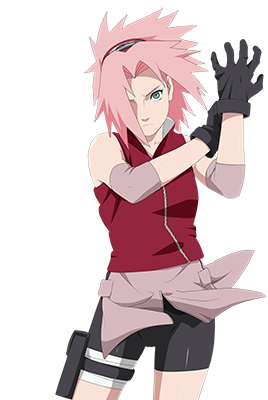
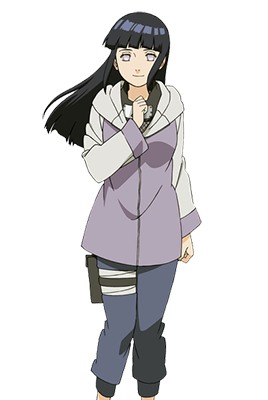
PROPAGANDA
SAKURA HARUNO (NARUTO)
1.) 1.) It is repeatedly stated throughout the series the areas in which she excels. We are told over and over again that she is gifted (early on in the series) or tremendously strong (end of the series) and yet with the exception of of the Sasori fight, there seems to be a staunch refusal to actually SHOW her being competent in a fight. 2.) her backstory ties into nothing plotwise as far as the overarching world and history of the village and its families. The three other leads (Sasuke Naruo, Kakashi) all get their own relevant backstory that gets delved into. But Sakura? Neither has one nor goes off and embroils herself personally into one of these overarching plot points. She is constantly forced to just be a companion/side character to the stories of her male counterparts. 3.) She’s given so much potential for a great powersuite and those all either go unrealized or she gets shown up by other characters. idk if this is what was meant by propaganda but its what i got
2.) Despite becoming the world’s best surgeon and doctor at age 17 (including doing open heart surgery in the middle of an active battlefield), her achievements are routinely undercut and underplayed by the canon.
It’s all the more disappointing because in some ways, she’s a very realistic and humanistic depiction of a teenage girl. Unlike her teammates, she grew up in what we would consider a pretty average family situation (two living parents who love her, even if they don’t understand her choices), and has relatively average goals at the beginning. Compared to her teammates who are orphans from dynastic ninja clans, who were basically born to a lineage of massive amounts of powerful ninja magic; Sakura’s civilian family has given her no genetic predisposition to being powerful. Despite this, she’s shown to be highly intelligent, achieving top scores on exams and having a deep knowledge for theory and concepts.
She begins the story having a crush on Sasuke Uchiha, a boy who has no interest in her, and hating Naruto, their village’s Omelas Child. However, as she works with her team, she bonds with them on a deeper level, and works very hard to meet their natural level of skill and not be deadweight on their team.
However, despite the fact that trios are treated with deep cultural and narrative significance throughout Naruto, the narrative quickly abandons the “Team 7 Trio” framing in all the ways that matter, becoming the Naruto-and-Sasuke show in all ways that matter. When Sakura gets her time to shine, she’s always undercut. Her massive physical strength and strong sense of self in Shippuden are never treated with the same reverence as her teammates’. Despite the fact that she can easily shatter rock and manipulate the ground with her sheer physical power, and that she was originally presented as good at genjutsu (illusion magic); she becomes a field medic/doctor – a carer/support role, rather than a DPS. Her decisions to advocate for herself and the people she cares about (such as trying to kill Sasuke) are treated as foolish and naive, not a heroic choice to try and help her friends at a large personal cost.
She also basically never gets to fight a man, except for one important case: Sasori. This is important, because the female characters in Naruto are routinely presented as less powerful and less of a threat than male characters. While her fight with Sasori is a fantastic arc, it ends with Sasori undercutting her victory by being like “well actually I wanted to die”, implying that he’d chosen to let her win, not that her win is well deserved. This is at the start of Shippuden, she doesn’t get a solo fight arc after that.
Of course, the most egregious thing done to Sakura is that she’s married off to Sasuke. Despite the fact that Sasuke is never once shown to give a shit about her, and the fact that her character development in a large part was about her giving up the childish and misogynistic desire to be a wife to the cute guy in her class, suddenly they’re together. Sasuke is a deadbeat husband, however, and immediately fucks off, to the point where he doesn’t recognise their child when he meets her, and tries to kill her. Sakura-the-housewife-waiting-at-the-window-for-her-husband’s-return is again now deeply in love with a man who doesn’t give a shit about her. The only photo she has of them together is shown to be a cutout of another photo of Sasuke stuck on a photo of her. She’s again trapped in a housewife box, her achievements and skill sideline to her ability to rear a child for the male lead. And worse, despite the fact she’s a very confident person who otherwise has no issue advocating for herself, she doesn’t really seem to fight back against this awful status quo in her relationship, grateful for the scraps of affection Sasuke delivers to her once a decade.
3.) Despite being on a team of three, she’s always side lined for the other two. Her whole thing is healing, then in a major arc at the end of the main series a character gets hurt and when she goes to attempt to heal them, she is pushed aside so Naruto can do his amazing magic healing that he just learned and is already better at it than her.
HINATA HYUUGA (NARUTO)
1.) When Hinata was introduced she goals, weaknesses, interesting interactions and relationships with characters other than naruto and a personality of her own. Post timeskip in shippuden, however, she was reduced down to simply ‘naruto’s future love interest’ and little else. The entire Hyuuga plotline was dropped and she no longer had any relevance or personality outside of naruto. Part 1 hinata was shy and insecure on the surface but underneath that she was determined & hardworking, even to her own detriment. Her struggles were compelling. Her interactions with neji and her family are something you look forward to seeing more of. In shippuden she’s like a flat carboard cutout of hinata. Her shyness exaggerated, her relationship with her family suddenly perfectly fine and boring. In part 1 naruto inspires her to keep trying but he isn’t the reason she’s working so hard, in shippuden he’s pretty much all she thinks about. Her change in character design really highlights these changes - the perfect little wife for cishet men to fantasise about.
2.) Her entire personality and arc is boiled down to “shy uwu waifu in love with Naruto” and basically any development she gets, which is barely at all because Kishimoto hates women, is as attributed to NARUTO and Naruto only. Even her reaction to her beloved COUSIN’S DEATH makes her be like “omg I love Naruto” and serves to further NaruHina, which is absolutely insane she would Not react like that. Naruto only starts being romantically interested in her at the beginning of like, The Last movie, which is after 500ish episodes of her being treated as the sidelined love interest who is devoted to a guy who only cares about her when she’s a damsel in distress on a fight.
There are so many parts of her character that are/could be interesting, like her part in the Hyuga Clan due to being born as a superior and her dynamic with her cousin Neji as a result, (which could have had SO many great moments of reconciliation and standing up for each other grrr grrr) an exploration of the impact of her bullying & being looked down upon (even when she’s supposed to be a superior member, which adds to the shame) LIKE MANY OF THE CAST, seriously the people Naruto trauma dumps to are mostly consisted of people unfairly treated like that and it could have been used to further NaruHina WHILE showing her struggles
She is an incredibly capable fighter but the moment Naruto is there, she instantly becomes defenseless and needs to be saved by her crush, mostly as a “wow look at him isn’t he so brave and kind to do this for her?!”
There’s an episode where she is literally used as a defenseless punching bag for Pein by trying to sacrifice herself for Naruto and telling him she loves him, JUST so he can be more angry and have more motivation to beat Pein’s ass (aside of the yknow. Killing his loved ones thing) AND her confession is ignored by Naruto for the rest of the series. Just like any moment she shows her crush for him is met with obliviousness, which would be fine if they weren’t the main couple and didn’t go on for THE ENTIRE SERIES!!!!
In Boruto, the shitty sequel, Naruto is basically her deadbeat husband in her bland lavander marriage and Boruto is rightfully mad about Naruto’s distance from the family and even says he left her basically a single mom and barely pays time to the family, and Hinata’s role in the show as the housewife is being like “no you see Boruto you have to understand your father’s pov as the Hokage” and the narrative treats NaruHina’s marriage as a Good, Healthy Thing as if the characters are not miserable in this marriage.
3.) Man I don’t even like her that much but she deserved SO much better. She was introduced as the heiress of a really powerful and renowed clan with complex dynamics, yet the author somehow decided to do almost NOTHING with the potential she had, and gave her very little personality besides being shy and fawning over the protagonist. She gets slightly more active in Shippuden (part 2), but her character still pretty much revolves around her love for Naruto, which sucks because again, she has so much potential. It’s no secret that women in Naruto are badly written, and Hinata certainly is no exception. The male characters get dozens of episodes/chapters about their motivations, their backstories, what pushes them to keep going, and Hinata gets almost nothing besides her lifelong crush on Naruto that we are reminded of literally every time she’s on screen.
114 notes
·
View notes